Solidarity in action: How racialised LGBTI activists are leading the way
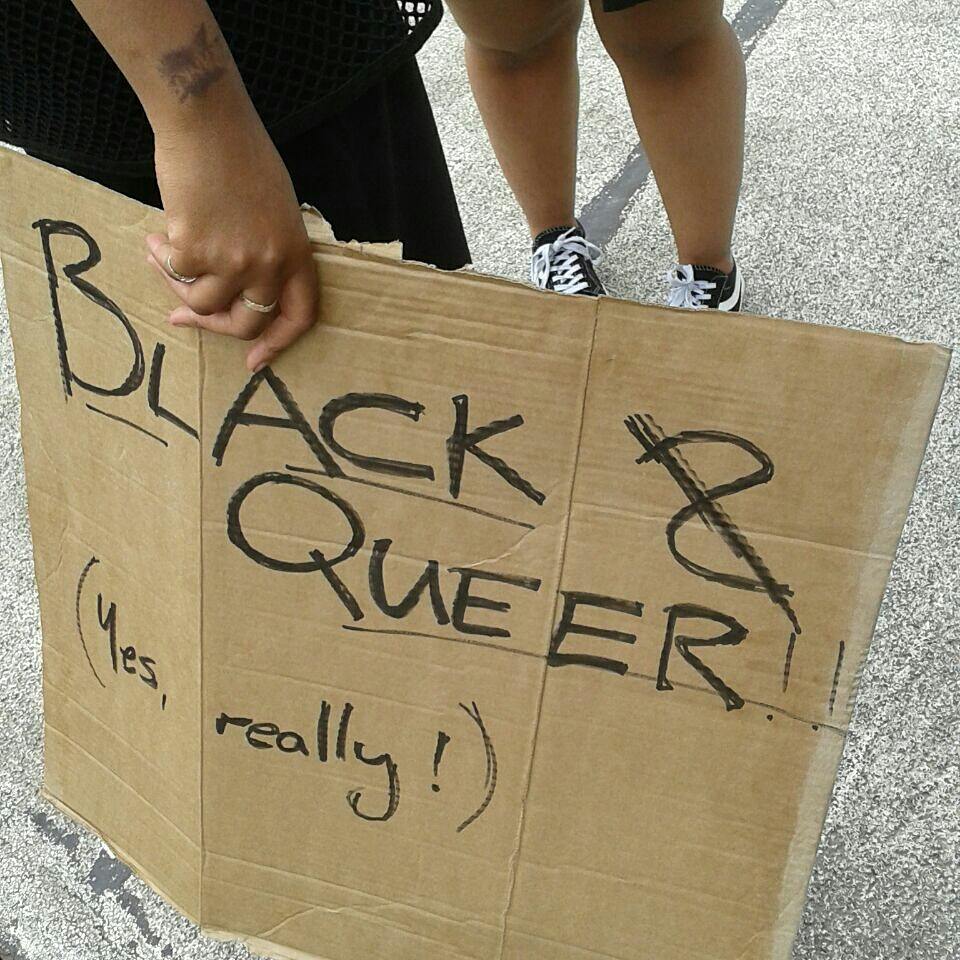
Across Europe, racialised LGBTI activists are redefining solidarity, not as a token gesture, but as a lifeline, a political act, and a practice of care. From fighting deportations to challenging power structures, their work offers a vision for a more just and transformative LGBTI movement.
“Solidarity is a technology of tenderness. It’s love. It’s protection. It’s grace. First to ourselves. Because we, as human beings, we always share what we are filled with.” (Faris Cuchi Gezahegn, Afro Rainbow Austria and House of Guramayle)
“To be radical, [solidarity as politics of affinity] has to be structural. That means dismantling colonisation, racism, LGBTI-phobia. It’s about redistributing discourse, resources, power.”(Pancho Godoy Vega, Colectivo Migrantes Transgresorxs)
With this new blog series, we’re sharing insights from the work of LGBTI organisations tackling injustice, racism, and the unique challenges faced by racialised LGBTI communities in Europe. We hope their stories and practices will inspire and resonate. We believe that solutions and approaches that include a few will pave the way and point to the solutions for many. You can read the previous blog in the series here.
For this blog, we’re shifting our focus to solidarity. What does it mean to racialised LGBTI communities? How is it understood, lived, and practised? And what would it mean for the broader LGBTI movement to engage in solidarity in a truly radical and transformative way?
To explore this, we spoke with three queer racialised groups: Queerstion Media (Sweden), Afro Rainbow Austria, and Migrantes Transgresorxs (Spain). Their stories are both deeply personal yet undeniably political.
Solidarity as a Lifeline
“I am a product of solidarity,” says Purity K Tumukwasibwe, Executive Director of Queerstion Media. “I became an activist by default. I was advocating for myself because otherwise my rights were just completely taken away from me.” From surviving police violence in Uganda and Kenya to being supported by a network of queer activists and allies in Europe, Purity’s journey is an example of how solidarity can be a lifeline, a practice that literally saves lives.
She shared a recent story of advocating for a fellow trans refugee in Sweden who was facing deportation to Uganda. “Everybody said that if the migration services decided on that, then it was over. But we said, ‘Let’s try’. I was so impressed by how everybody came on board.” Through a petition, media outreach, and institutional pressure, united in solidarity, they changed the outcome. The woman was granted residence in Sweden and permitted to stay. “When I see these members we support, who we come together for, I feel like I have contributed to a better world,” says Purity.
A Technology of Tenderness
For Faris Cuchi Gezahegn, member of Afro Rainbow Austria and co-founder of House of Guramayle, solidarity is both a political act and a spiritual practice. “To exist in this world as the person that I am, I am the manifestation of solidarity,” they say. Faris speaks of the collective effort that ensured their survival as a queer Ethiopian activist forced to flee, and how those acts of support were never transactional, but rooted in mutual care.
For Faris, solidarity isn’t about identity politics or rigid definitions. “It’s a technology of tenderness,” they explain. “It’s love. It’s protection. It’s grace. First to ourselves. Because we, as human beings. We always share what we are filled with.”
Yet, Faris also sees an urgent need for transformation within the LGBTI movement itself. “We harm one another. We are often encircled by the violence projected onto us, and we replicate it – in our accountability practices, in our scarcity mindsets, in how we treat one another.” Their call is for radical healing: to resist punitive impulses and lead with softness, honesty, and vulnerability.
Beyond Solidarity Towards Structural Change
The collective Migrantes Transgresorxs challenge the word ‘solidarity’. “We prefer to talk about the politics of affinity,” says Alex Aguirre Sánchez. “Solidarity carries a violent historical weight. It comes from religious charity, and religion has been violent for us.”
Instead, they emphasise ancestral bonds and community-to-community alliances. “We stay together, and together we are stronger,” says Kimy/Leticia Rojas. “It’s about sharing food, music, lived experience, and ancestral knowledge.”
Pancho Godoy Vega adds: “To be radical, it has to be structural. That means dismantling colonisation, racism, LGBTI-phobia. It’s about redistributing discourse, resources, power.” The group, formed in Madrid in 2009, has always intertwined the personal and political – fighting for trans migrants, critiquing whiteness in LGBTI spaces, building alliances from the bottom up.
All the activists featured in today’s blog share this in common: they call for a solidarity that is not superficial or symbolic, but material, embodied and rooted in justice. It means funding grassroots work. Sharing platforms. Redistributing power. Above all, it means healing.
As Purity puts it: “There is always going to be two sides of that coin, those with resources, and those at the margins shouting that we are struggling. Bridging that gap means planning together. It means putting grassroots like ours on the agenda.”
Essential digital safety skills for LGBTI movement in 2025

Building on last year’s successful security learning series, we’re excited to introduce a new, hands-on programme designed specifically for LGBTI activists, in association with our partner organisation: AccessNow, and trainer Oleg Serov.
As online threats evolve, so must our strategies to stay safe. In our new learning sessions, we’re offering actionable steps to help you protect your privacy, reduce digital risks, and tackle AI-driven challenges head-on.
What to Expect
Every Wednesday, starting April 2, we’ll host a 90-minute webinar focused on practical digital security skills, including:
Engaging Safely with AI
As AI tools become more integrated into activism and daily digital interactions, they bring new risks. Learn how to use AI effectively while safeguarding sensitive information, preventing data exposure, and protecting the privacy of your work and community.
Minimizing the Impact of Doxing
Doxing—exposing private or identifying information—can have dangerous consequences. Gain strategies to reduce the risk of doxing and keep both your personal safety and your team’s security intact.
Tackling the Effects of Harmful Bots
Harmful bots spread misinformation, amplify harassment, and disrupt activism. Learn how to recognise bot-driven attacks, mitigate their impact, and protect your digital spaces from manipulation and coordinated disinformation campaigns.
Who should join?
LGBTI groups from Europe and Central Asia seeking to strengthen their digital security. This series is designed to be skills-focused, offering you concrete tools to strengthen your digital security and make online activism safer. Whether you’re new to these issues or seeking to deepen your knowledge, these sessions will provide up-to-date, actionable insights.
Dates & Registration
| # | Topics | Language | Date | Time | Registration |
| 1 | Engaging Safely with AI | Russian | April 2 | 10:00 CEST | Register now. |
| 2 | Engaging Safely with AI | English | April 9 | 10:00 CEST | Register now. |
| 3 | Doxing | Russian | April 16 | 10:00 CEST | Register now. |
| 4 | Doxing | English | April 23 | 10:00 CEST | Register now. |
| 5 | Harmful Bots | Russian | April 30 | 10:00 CEST | Register now. |
| 6 | Harmful Bots | English | May 7 | 10:00 CEST | Register now. |
To ensure a safe and dedicated space, registration forms will be approved individually. If you are approved, you will receive a link to the event.
Цифровая безопасность для ЛГБТИ-групп в 2025 году: основные навыки.
Примите участвие в нашей программе по цифровой безопасности для ЛГБТИ-групп, которая начнется 2-го апреля. Узнайте, как защитить свою конфиденциальность, противостоять цифровым угрозам и управлять рисками ИИ с помощью практических навыков, которые укрепят ваш активизм.
В прошлом году мы провели серию обучающих мероприятий по цифровой безопасности, и сейчас мы рады представить вам новую ориентированную на практику программу, разработанную специально для ЛГБТИ-движения в сотрудничестве с организацией AccessNow и с тренером Олегом Серовым.
По мере развития цифровых угроз должны развиваться и наши стратегии безопасности. На наших новых вебинарах мы расскажем о конкретных шагах, которые помогут вам защитить свою конфиденциальность, снизить цифровые риски и лучше понимать проблемы, связанные с использованием ИИ.
Формат и время
Каждую среду, начиная со 2 апреля 2025 года, мы будем проводить 90-минутные вебинары, посвященные практическим навыкам цифровой безопасности с 10:00 до 11:30, по Брюсселю. Каждый вебинар будет посвящен конкретной теме:
Безопасное взаимодействие с ИИ
Поскольку инструменты ИИ все больше интегрируются в активизм и повседневное цифровое взаимодействие, они несут с собой новые риски. Искусственный интеллект становится все более важной частью активисткой работы, и нашей жизни в целом, и это несет новые для нас риски. Узнайте, как эффективно использовать ИИ, защищая конфиденциальную информацию, предотвращая раскрытие данных и защищая конфиденциальность вашей работы и ЛГБТИ-сообщества.
Дата и время: 2-е апреля, 10:00 СЕSТ
Регистрация*: https://ilga-europe-org.zoom.us/meeting/register/PuY83HR4SDCjviBQkyF1cg
Минимизация последствий доксинга
Доксинг — раскрытие личной или позволяющей идентифицировать человека информации — может иметь опасные последствия. Узнайте о том, как снизить риск доксинга и сохранить как вашу личную безопасность, так и безопасность вашей команды.
Дата и время: 16-е апреля, 10:00 СЕSТ
Регистрация*: https://ilga-europe-org.zoom.us/meeting/register/XoPR0ebASnudvx6OJMgeTQ
Противодействие вредоносным ботам: существующие практики
Вредоносные боты распространяют дезинформацию, способствуют преследованиям и подрывают активизм. Узнайте, как распознавать атаки, управляемые ботами, смягчать их последствия и защищать свое цифровое пространство от манипуляций и скоординированных кампаний по дезинформации.
Дата и время: 30-е апреля, 10:00 СЕSТ
Регистрация*: https://ilga-europe-org.zoom.us/meeting/register/X3m9T4f3T46oy8Dl_Mb1fQ
Кто может записаться?
ЛГБТИ-группы из Европы и Центральной Азии, стремящиеся укрепить свою цифровую безопасность. Эта серия разработана с упором на навыки, предлагая вам конкретные инструменты для укрепления вашей цифровой безопасности и повышения безопасности онлайн-активизма. Независимо от того, являетесь ли вы новичком в этих вопросах или хотите углубить свои знания, эти сессии предоставят вам актуальные, рабочие идеи.
* Чтобы обеспечить безопасное пространство, регистрационные формы будут одобрены индивидуально. Если вас одобрят, вы получите ссылку на мероприятие.
Joint input for the European Democracy Shield
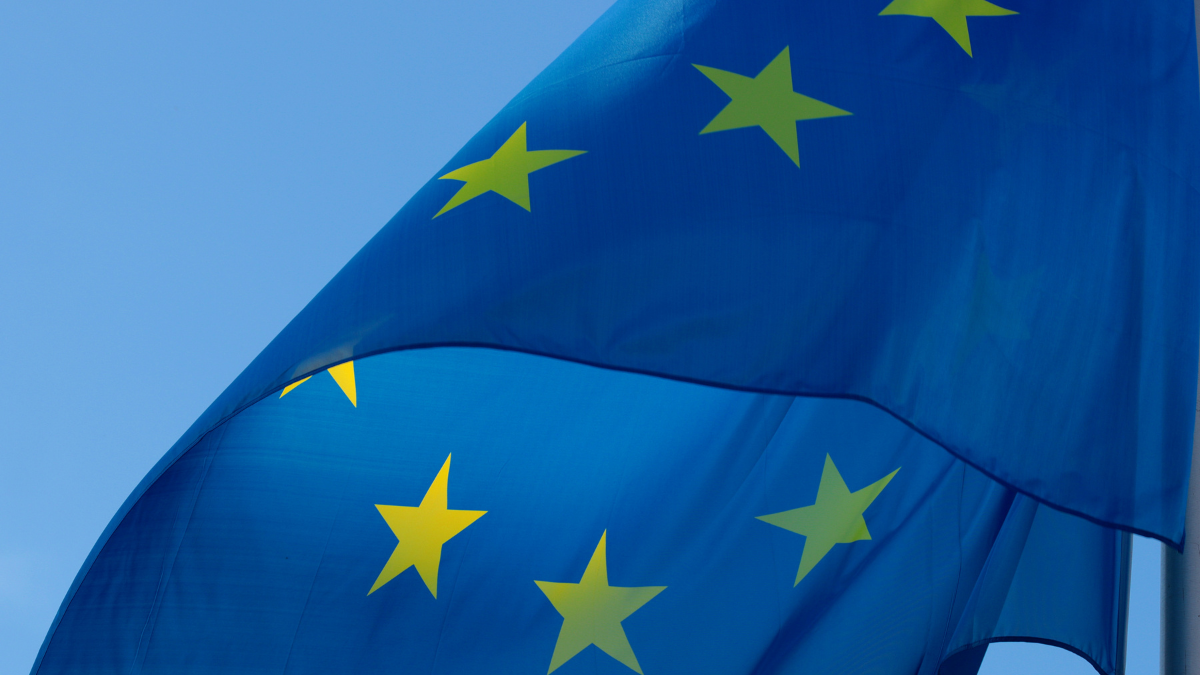
ILGA-Europe has joined a statement from civil society organisations in support of the European Democracy Shield. Coordinated by the European Partnership for Democracy, the statement was signed by 50 organisations dedicated to supporting democracy.
As organisations working to support and develop democracy, we welcome the European Commission’s initiative to create a European Democracy Shield as a coordinated effort to support democracy in and around Europe. This initiative is particularly relevant in the current context of global democratic backsliding.
Given the Shield’s thematic focus on the information space, election integrity, and civic engagement, we see it as a natural successor to the European Democracy Action Plan (EDAP). EDAP saw the introduction of the European Media Freedom Act (EMFA), the Anti-SLAPP Directive, a revamped Code of Practice on Disinformation, and the Regulation on the Transparency and Targeting of Political Advertising (TTPA), among others, which are all vital steps towards creating healthier European democracies. Complementing the EDAP, legislation was passed such as the Digital Services Act (DSA), the Digital Markets Act (DMA), and the AI Act that regulate technological advancements in line with democratic standards.
Taking into consideration the Commission’s core priorities on democracy, including the rule of law and fundamental rights, the Shield should use this legislative basis with increased determination and ambition, to achieve concrete improvements over the next mandate.
Priority areas
In order to ensure that the European Democracy Shield effectively responds to the challenges faced by democracy in Europe, it is vital that it addresses the following priorities:
- The legislation to underpin the protection of democracy in Europe exists. The European Democracy Shield should enable the swift and effective implementation and enforcement of existing legislation in this domain – such as the Digital Services Act (DSA), Digital Markets Act (DMA) the Regulation on the Targeting and Transparency of Political Advertising (TTPA), the European Media Freedom Act (EMFA) and the AI Act.
- The Commission plays a vital role in enforcing the existing rules and elaborating on legislation through delegated acts, guidelines and Codes of Conduct. Both political will and adequate resourcing of the EU institutions and other democracy stakeholders is crucial for this.
- At a time of significant geopolitical uncertainty, it is of ever greater importance for the EU to stand by the standards it has set. Weakening them at this stage will embolden leaders with authoritarian tendencies and only increase the threats posed to European democracies in the short-run as well as in the long-run.
- The Commission should promote safe harbour protections for researchers examining online platforms and AI, in line with the above legislation, to prevent intimidation and legal risks from having a restrictive effect on research that is in the public interest. This can be done by developing Guidelines on non-prosecution – to be spearheaded by the Commission’s DSA Unit or the AI office – and an exemption from civil liability similar to the protection of software vulnerability reporting.
- The Democracy Shield should be coordinated with other work in the Rule of Law dialogue, especially around checks and balances as provided by independent authorities, rule of law institutions, and parliamentary strengthening. Areas for specific coordination might include further promotion of political finance rules on campaigns and advertising, as well as campaign data.
2. Combatting disinformation is a necessary and inevitable component of the democracy support agenda. While the focus has often been on Foreign Information Manipulation and Interference (FIMI), equal importance should be given to countering domestic disinformation, which accounts for a significant portion of overall disinformation operations. The fight against disinformation however, must not come at the expense of free and independent journalism.
Given the vast proliferation of disinformation, structural solutions should be favoured over reactive ones. Ad hoc efforts are often too little, too late, and cannot address the magnitude of the problem.
- Disinformation should be demonetised. The business model of online platforms and online advertising currently incentivises the spread of disinformation given its propensity to go viral and therefore generate revenue. This should be countered in advertising design to avoid the abuse of such models by specific platforms or opinion- and decision-makers. For-profit platform providers, however, will not take such measures by themselves, but rather adapt their internal policies according to the current political climate and profit considerations, such as in the case of Meta’s changes to their content moderation policies.
- Achieving equal access to quality content moderation across all European languages and communities is crucial for fostering an equitable environment for expression.
- Fact-checking is important, but checking every piece of information available online is impossible. It must therefore be accompanied by integrated media literacy programmes so that people are taught how to critically assess information even when not fact-checked. The Commission should therefore support Member States in integrating flexible media literacy programmes into their education systems, which can adapt along with rapid changes in the information environment. While youth should be a key focus, media education must also be promoted as a lifelong learning process, ensuring that all generations develop the necessary critical thinking skills to resist manipulation in an ever-evolving information landscape – this can be done in libraries, senior citizen centres, or in professional settings.
- The DSA and the TTPA should be enforced to ensure that the models and tools used by online platforms are brought in line with existing legislation and democratic standards. This is of particular importance to ensure the integrity of elections, as online platforms are increasingly determining key narratives in electoral campaigns through both framing and platforming – often in opaque ways. Examples include TikTok’s role in determining the Romanian presidential elections, and X’s platforming of Germany’s AFD party ahead of the parliamentary elections. The current lack of transparency, accountability, and resources is a major obstacle to mitigating this risk.
- Investing in alternative models is paramount and should be accompanied by a broader reflection on the business model of online platforms. The current tracking ads-based for-profit model has been proven to enable the disproportionate spread of disinformation online, increase polarisation, and make it extremely difficult to tackle the issue without structural solutions. One example is creating digital public infrastructure in social media that is governed by and for citizens. These alternative models should be optimised for healthy public debates rather than stimulating user addiction for profit.
3. A robust media sector working in the public interest is one of the strongest guarantees against the harmful effects of disinformation and polarisation. Yet the space for media freedom is under threat around Europe and journalists face harassment, intimidation, and physical attacks for simply carrying out their work. The sector has also been struggling financially for a long time. This is exacerbated by the tracking ads industry favouring Very Large Online Platforms and having led to an estimated 50-70 percent decrease in advertising revenue for news publishers (source). At the same time, the sector faces increasing media capture (examples include Hungary and Slovakia) and threats to its independence through the consolidation of media ownership.
The growing challenge of countering the avalanche of disinformation has become an existential threat to many independent outlets. As such, it is of crucial importance for the EU to allocate adequate resources to keep the independent sector operational and able to hold its weight against disinformation narratives. This has become all the more important since the US funding freeze, which significantly affected the media sector. The current Multi-Annual Financial Framework (MFF) includes 1.42 billion EUR for the media strand of the Creative Europe programme for 2021-2027. Meanwhile, Russia spent the same amount on media in 2021 alone. It is clear that the independent media sector cannot be a robust counterbalance to the barrages of disinformation without stronger institutional support.
- Commit to considerably increasing media funding. Commissioner Kos’ commitment to doubling funding for media in the European Neighbourhood is an important step in the right direction, but it is not enough compared to the level of funding provided by other foreign actors.
- The types of funding given to the media should be reviewed and expanded. While the majority of media support currently consists of project-based funding and business development support, there is a much broader range of support necessary to boost the sector and help it operate in a healthy way, conducive to its mission of informing the public and providing a counterweight to disinformation narratives. Key among them is the need for more direct core support, as stipulated in the Media Viability Manifesto.
- Expand and strengthen the work of the European Commission to further member states’ efforts to improve the safety of journalists, including through the ongoing implementation of the 2021 Safety of Journalists Recommendation.
- Commit to redressing the current economic model to ensure sustainable media by rebalancing the economic power between news media and the platforms who profit from their content, including by requiring platforms to pay for journalistic content and redressing the imbalance in the advertising market.
4. The European Union is not an isolated entity, and its information space is heavily affected by, and interlinked with, that of neighbouring regions. As such the European Democracy Shield should encompass both an internal and external dimension. Strengthening democratic standards in neighbouring regions will inevitably create a more stable environment for the European Union. Recent election campaigns in Moldova and Georgia heavily focused on the countries’ European future, with disinformation significantly endangering it in the former, and creeping authoritarianism halting it in the latter.
- The protections ensured through the European Democracy Shield should be extended to candidate countries in order to allow for the better protection of democracies in the European Neighbourhood. This will also be a clear sign of commitment from the EU to the enlargement process, which is particularly necessary in the Western Balkans where the level of scepticism regarding enlargement keeps increasing.
- At the same time, knowledge transfers should be enabled from outside the Union, given that pro-democracy actors from the European Neighbourhood and beyond have significant experience in fighting disinformation and other threats to democracy.
5. A pluralistic European civil society1 is crucial to upholding democracy as well as the values outlined in Art. 2 TEU. There should be a stronger commitment to ensuring an enabling environment for civil society to operate in, and for citizens to mobilise and make their voices heard. The legitimacy of civil society to participate in policy making, to play its watchdog role, and to act in the public interest is being questioned and in some contexts the very existence of an independent civil society and activism is under threat.
- Through the Shield, the EU Commission should set up robust monitoring and protection mechanisms for civic space within the EU, including a focus on rapid response protection for human rights defenders, and other vulnerable and marginalised groups. It should also coordinate with the announced Civil Society Strategy in order to ensure synergies.
- This should be accompanied by dedicating adequate funding to support civil society in its mission, including core funding. Civil society will be a key partner in forging the Democracy Shield and adequate resourcing will therefore increase the impact of the initiative.
- Acknowledge that existing administrative procedures for civil society serve the purpose of transparency and impartiality. Further attempts at increasing the administrative burden for CSOs should be seen as a restriction of civic space by redirecting resources away from the protection of democracy and towards bureaucratic compliance, which is to the detriment of European democracy.
- As with SMEs, the Commission should consider using the proposed 28th Regime for companies to simplify EU-wide operations by non-profits.
- The Shield should reaffirm the legitimacy and importance of civil society in policy making through inclusive, transparent and open-structured civil dialogue.
6. As a foundational value of the EU, democracy should be at the core of the EU’s security and defence strategy. Such a strategy must ensure that fundamental rights and democratic standards are not sacrificed in the name of strengthening Europe’s security. While existing within the democracy/security nexus, the European Democracy Shield should at all levels align with and uphold the fundamental principles of the EU, as stipulated in Article 2 of the Treaty on European Union (TEU). The human security literature shows that democratic resilience, social welfare and adherence to human rights standards increases the security of a nation. Investing in democracy is therefore a direct investment in Europe’s security.
7. Democracy is the foundation of the European Union, as such its destabilisation poses an existential threat to all aspects of the Union. The European Democracy Shield should help create interlinkages and strategic coordination between different Directorates, Departments and Agencies (DG JUST, DG CNECT, DG CLIMA, DG ENEST, DG MENA, DG INTPA, DG BUDG), the EEAS and the Service for Foreign Policy Instruments to ensure a holistic approach to democracy support.
- This could be implemented by Directorates having a clear contact point for matters relating to the European Democracy Shield to facilitate coordination. There should be clarity on the specific responsibilities of different institutions with regards to the Shield, e.g. monitoring, reporting.
8. Innovate democracy. Another key threat to European democracy these days is the growing disconnect between decision-making processes and the citizens they affect. For example, in the Netherlands, trust in parliament has declined from 58% in 2020 to 25% in 2023. This has fostered a pervasive distrust in public institutions and has exacerbated the gaps between those who govern and those who are governed. Democratic politics must be strengthened by implementing and investing in new democratic practices and technology, focused on citizen participation and inclusion.
- European public spaces – both online and offline – must be as open, constructive and safe as possible to ensure that citizens can voice their opinions effectively. Initiatives such as the renewed European Commission “Have Your Say” portal have already laid important groundwork in this regard. Yet, the European Commission should strive to enhance accessibility to these platforms, ensuring they are inclusive of diverse voices, particularly those from marginalised groups.
- Support investment in democracy-enabling and human-centric technologies, and in hackathons, incubators, accelerators and scale-ups in the sector. This can also contribute to Europe building a competitive advantage in the civic tech sector.
The European Democracy Shield is an opportunity for the European Union to take concerted action at a time when authoritarian forms of governance are increasingly favoured by the EU’s neighbours and partners. The Shield should therefore consist of a strong response, in terms of framing, funding, and follow-through.
We are committed to work with the European Commission and other stakeholders to ensure that concerns and recommendations from civil society are integrated into the Shield’s framework, laying the foundation for strong cooperation on democracy support in this mandate.
1 This includes civil society organizations / actors specifically working on the promotion of democracy itself or seeking to influence political decision-making processes, as well as civil society actors working on strengthening the social fabric within European societies as a whole (and independent of political influence).
Signatories
Europe
- Alliance4Europe
- ARTICLE 19
- Bulgarian Institute for Legal Initiatives Foundation (BILI)
- Center for Countering Digital Hate (CCDH)
- Centre for Public Policy Providus (Latvia)
- CFI Développement Médias (CFI)
- Civil Liberties Union for Europe
- Committee to Protect Journalists (CPJ)
- Croatian Platform for International Citizen Solidarity (CROSOL) (Croatia)
- Democracy Reporting International (DRI)
- Democratic Society
- Demos Helsinki
- DW Akademie
- Europe Jacques Delors
- European Association for Local Democracy (ALDA)
- European Centre for Press and Media Freedoms (ECPMF)
- European Federation of Journalists (EFJ)
- European Partnership for Democracy (EPD)
- Fondazione Openpolis (Italy)
- Free Press Unlimited (FPU)
- Fund Safe Ukraine 2030
- The Good Lobby
- Human Rights Monitoring Institute (Lithuania)
- ILGA-Europe (European region of the International Lesbian, Gay, Bisexual, Trans and Intersex Association)
- ImplicarePlus.org (Romania)
- Institute for Strategic Dialogue (ISD)
- International Federation for Human Rights (FIDH)
- International Press Institute (IPI)
- International IDEA
- Kofi Annan Foundation
- Lie Detectors (LD)
- Make.org
- Netherlands Helsinki Committee (NHC)
- Netherlands Institute for Multiparty Democracy (NIMD)
- Network of Estonian Non-Profit Organisations (NENO) (Estonia)
- Open Government Partnership
- Open Society Foundation Bratislava (Slovakia)
- Open Source Politics
- People in Need
- People Powered (PP)
- Political Parties of Finland for Democracy – Demo Finland
- TRAC FM International (Netherlands)
- Transparency International EU
- Vouliwatch (Greece)
Global
- African Digital Democracy Observatory (ADDO)
- African Fact-Checking Alliance (AFCA)
- Code for Africa (CfA)
- Fundacion B77
- HuMENA for Human Rights and Civic Engagement
- One More Percent
Strategic offline communications & community-building for LGBTI groups
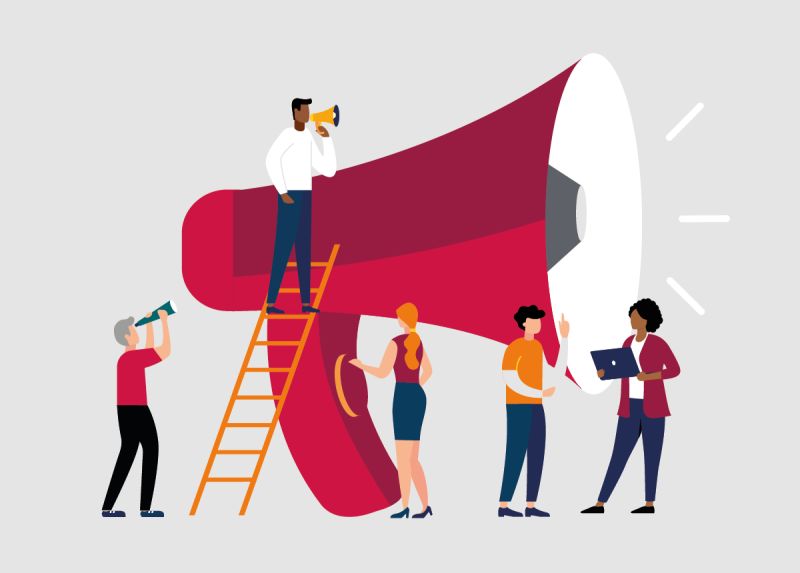
In today’s world, so many things happen online: support-groups, meetings, conferences, even community festivals. But does that mean offline engagement is obsolete and no longer helpful? At this session, we will learn why Ljubljana Pride Association (Slovenia) and Women’s Initiatives Supporting Group (Georgia) decided to focus on offline communications and community building, and what they gained from it.
At the session, we will cover:
- Offline communications and community building: does it make any sense?
- What is the right balance between offline and online?
- Intersectionality beyond our screens
- Offline movement engagement tactics
- The opportunities and challenges of offline engagement
You will hear from:
- Simona Muršec (she/her) is the President of Ljubljana Pride Association since 2015 and a devoted Human Rights Education trainer and facilitator of youth policy processes for over 20 years. She gained extensive experience working intercontinentally, with the focus on Africa-Europe and Euro-Arab Youth Cooperation and spaces of Global Education. She is a certified LEGO® SERIOUS PLAY® facilitator and supports organisations and teams with inclusive organisational strategic development. Simona is a member of the ILGA-Europe board.
- Nino Kharchilava (she/her) is a queer activist and women’s rights defender. Nino has a Master’s degree in gender studies. Her research interest is feminist practices of creating and transforming spaces. Since 2008, Nino has been involved in creation and development of safe spaces for queer and feminist women, and has actively participated in forming and conceptualising intercultural links in queer community and among women rights defenders, both at regional and international levels. Nino is a trainer of integrated security. She is also a co-author of a concept of healers. Currently she works as a Research and Education Coordinator at WISG.
- Eka Tsereteli (she/her) is an activist and women rights defender, co-founder of queer feminist organisation Women’s Initiatives Supporting Group (WISG). Eka’s feministic work is centered around transformative practices of organisational management, arts and creative initiatives, integration of multimedia and innovative technologies in activism. Since 2000, she has authored and implemented different initiatives directed towards ensuring gender equality, strengthening women and queer community and advocating their rights. She has organised multiple exhibitions and multimedia projects directed at changing public attitudes towards issues of queer community and women. Her work and experience in activism includes cooperation with different local and international organisations, both at executive positions and at the positions that bear responsibility for strategy development. Currently she is director of WISG.
This 90-minute session will take place on Thursday, April 10, 2025 (12.00-13.30 CEST). Register to join us here.
Check out our resources on strategic communications.
Do you struggle with some specific communications challenge and do not know where to start? Reach out to us, we might be able to help! Contact svetlana@ilga-europe.org.
Freedom to Protest Is Under Attack – Why It Matters for Everyone

When states suppress public protests, they don’t just target activists, they erode the rights of all citizens. The latest crackdowns in Hungary, Turkey, and beyond show why defending freedom of assembly is more urgent than ever.
On 8 March, people took to the streets to mark International Women’s Day, but their right to march was actively suppressed in many places. From Kazakhstan to Turkey and Azerbaijan, authorities used intimidation, force, and legal threats to prevent women from gathering, exposing a broader pattern of restrictions on civil society. Meanwhile, in Hungary, the government has escalated its efforts to suppress freedom of assembly, passing a law that explicitly bans Pride marches and introduces surveillance measures to deter participation.
Crackdowns on feminist and LGBTI protests
Ahead of Women’s Day, Kazakhstan authorities detained LBT activists from Feminita, using penal and administrative tactics to suppress their activism. In Turkey, nearly 200 people were detained in Istanbul alone, with police blocking demonstrations across multiple cities on the 8th. Among those detained was a trans woman, underscoring how trans activists are often specifically targeted. In Azerbaijan, feminist activist Rauf Heydarov was sentenced to 30 days of detention after attempting to display a poster on 8 March, with fabricated charges used to justify their arrest. These cases illustrate how states use arbitrary detentions and legal mechanisms to intimidate activists and restrict their right to assemble and protest.
Hungary: From threats to an outright ban on Pride
In Hungary, restrictions on freedom of assembly have intensified dramatically. What started as a “child protection” law—banning the “depiction or promotion” of homosexuality to minors and widely condemned by EU leaders, the European Commission, and the Council of Europe as violating international human rights standards—has now escalated into a nationwide ban on Pride marches. The new law not only criminalises these events but also permits the use of facial recognition technology to track and penalise participants. Despite this, the Budapest Pride organisers remain committed to marching, demonstrating the resilience of the movement in the face of increasing authoritarianism.
A key indicator of democratic health
These events in Hungary, Turkey, Kazakhstan, and Azerbaijan are not isolated incidents. They reflect a broader trend in which governments seek to silence peaceful and legitimate dissent by restricting public demonstrations, targeting women’s rights and LGBTI activists, and using legal measures to suppress fundamental rights. The ability to protest is a key indicator of democratic health. When states criminalise peaceful assembly, they erode not just rights for LGBTI people and women, but the broader foundation of civil liberties for all.
As these threats grow, the international response must be clear. Governments, the EU, and international institutions must hold states accountable for these violations and stand in firm defence of the right to protest. Freedom of assembly is not just an LGBTI or feminist issue; it is central to human rights and democracy. When one group’s right to gather is restricted, the ability of all people to organise and demand change is at risk.
The human right to assemble and protest must be protected, defended, and upheld.
Inventory of relevant SOGIESC case law and pending cases before the ECtHR and CJEU 2025
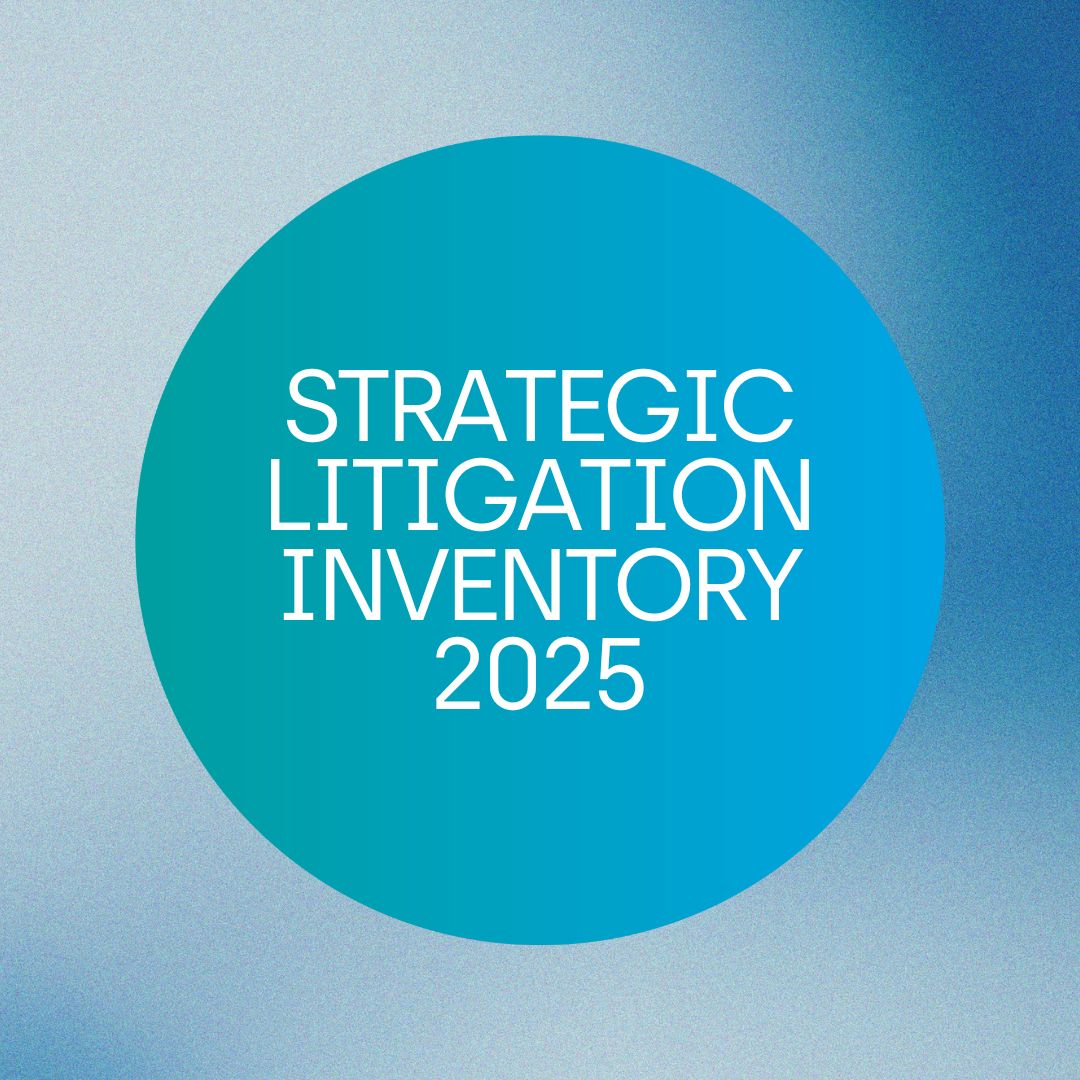
In order to focus our strategic litigation efforts across Europe to fully protect and advance LGBTI rights, with this inventory ILGA-Europe wants to support members and partners across the region to identify trends and gaps in protection at the European level, which can commonly be tackled through litigation. The inventory can further strengthen cooperation and help guide our work and efforts by others in bringing forward and supporting strategic cases.
This inventory and continuous assessment of the European landscape informs ILGA-Europe’s ongoing engagement in strategic litigation through identification and support of strategic opportunities.
This inventory covers relevant SOGIESC cases from 2010 up until December 2024.
Petition to safeguard the EU Directive on anti-discrimination
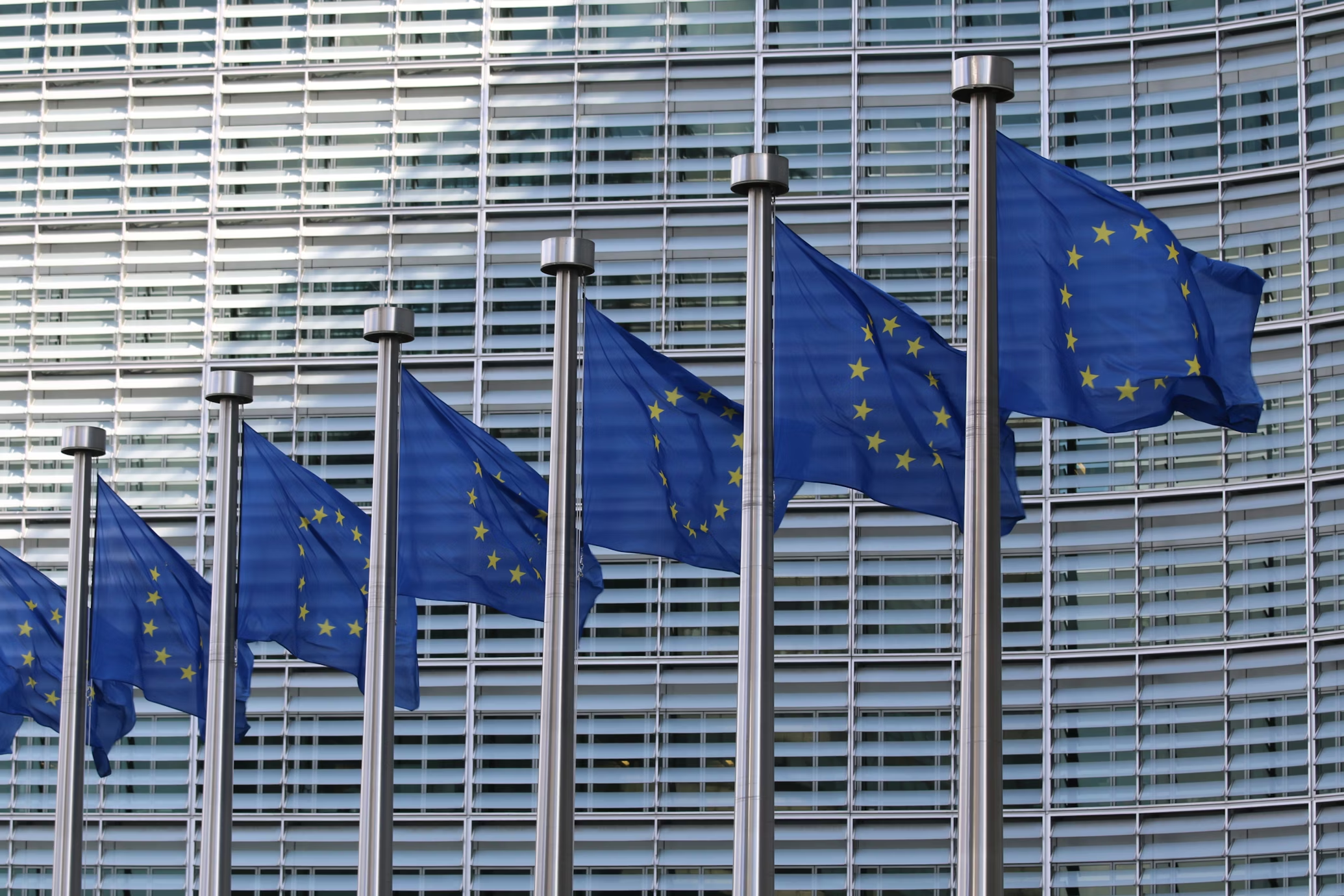
In a move that has raised significant concerns among human rights organisations, the European Commission has announced it plans to withdraw the proposed Horizontal Equal Treatment Directive, a legislative measure aimed at strengthening anti-discrimination protections across the European Union.
How the Directive should protect your rights
This directive represents a commitment to combat discrimination in various sectors of public life, including access to healthcare, education, housing, and social benefits. It is particularly vital for protection against discrimination based on religion or belief, disability, age or sexual orientation, and is a baseline to further expand comprehensive protection to all groups at risk of marginalisation across all areas of life.
This decision comes at a time when far-right forces are gaining momentum in the EU and beyond, posing a significant threat to democracy, equality, and human rights across the continent. Instead of taking decisive action to protect groups at risk of marginalisation—including LGBTI people, older and younger people, persons with disabilities, religious minorities and those at the intersections of discrimination, including racialised people—the European Commission has chosen inaction, sending a dangerous message that equality is negotiable.
Background on the Directive
In 2008, the Commission proposed a Council directive aimed at extending equal treatment protections beyond the workplace. However, the proposal has been stalled for years due to a lack of unanimous agreement among EU member states, with only a few countries such as Czechia, Germany, and Italy blocking it before the Commission ultimately announced it would withdraw the proposal. As a result, millions of people remain vulnerable to systemic discrimination, and a hierarchy of protection has emerged, where some forms of discrimination are addressed more comprehensively than others.
The European Commission’s planned withdrawal of the Horizontal Equal Treatment Directive represents a pivotal moment for anti-discrimination efforts within the EU. At a time when human rights protections should be strengthened, the EU cannot afford to retreat.
Sign the petition
By signing this petition, you join the call for European leaders to reaffirm their commitment to a Union of Equality. Demand that they reject any regression in anti-discrimination laws and work towards strengthening protections for all people.
The petition is available in Italian, French, German, and Portuguese.
Hungary’s Parliament Passes Law Banning Pride
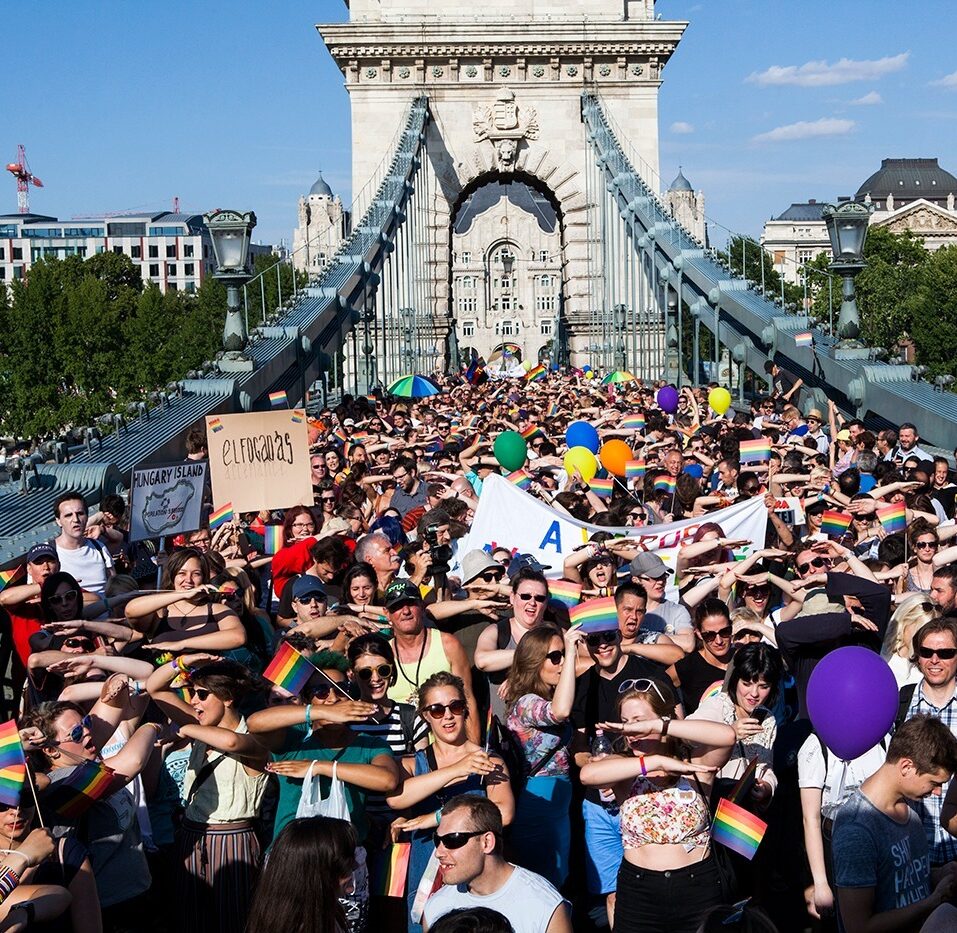
In an attack on freedom of assembly, Hungary’s Parliament has passed a controversial law criminalising Pride marches and allowing the use of facial recognition technology to target participants.
In a deeply troubling development, Hungary’s Parliament has passed a law banning Pride marches across the country. The law was fast-tracked through Parliament in just one day, with no consultation or debate, marking a significant erosion of freedom of assembly and human rights in Hungary.
The newly passed legislation expands Hungary’s already controversial “child protection” law, which prohibits the “depiction or promotion” of homosexuality to minors. This law reinforces harmful and outdated stereotypes about LGBTI individuals and their rights.It takes this one step further by criminalising Pride events, both for organisers and participants, while also granting authorities the power to use facial recognition technology to track, identify, and fine attendees. This measure has been condemned as a significant infringement on privacy and personal freedoms.
According to ILGA-Europe’s Executive Director, Chaber: “This new law is more than just a ban on a single event. It represents an assault on the fundamental freedoms of expression, assembly, and protest, and an attempt to silence the LGBTI community in Hungary. It is an effort to erase LGBTI people from public life and restrict their ability to peacefully protest. More restrictions on the rights of other people will follow.”
The government’s actions have sparked widespread protests. Yesterday, thousands gathered outside Parliament, chanting anti-government slogans. The organisers of Budapest Pride also remain defiant. This year marks the 30th anniversary of the Budapest Pride march, and they are committed to marching on June 28, 2025.
“The international community must rally behind the people of Hungary, demanding the protection of their right to peacefully assemble and protest,” Chaber added. “As Pride marches continue to grow and oppose authoritarianism worldwide, the fight for LGBTI rights becomes even more vital in the broader struggle for democracy and human dignity.”
Joint statement welcoming EU’s top court judgment to correct a trans man’s gender identity data in national registry
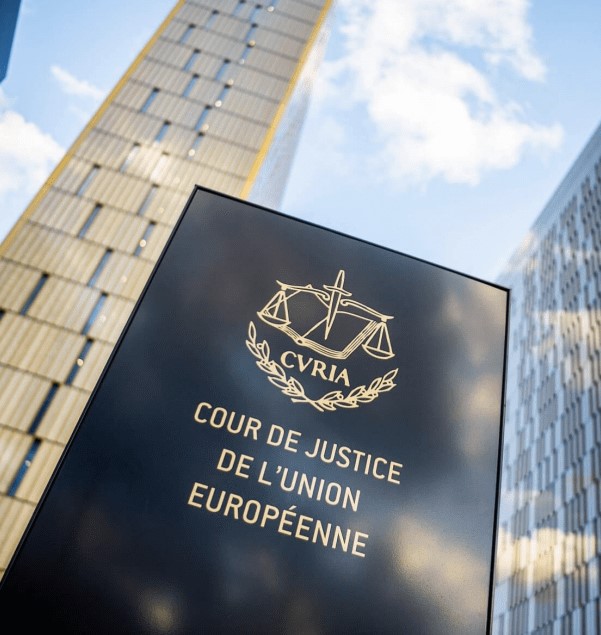
Today, the European Court of Justice (CJEU) issued a judgment in the case of Deldits (C-247/23), stating that national authorities responsible for keeping public registers (such as asylum registers) should correct data on gender identity when it is inaccurately recorded. This decision carries significant implications for advancing human rights protections in the EU, at a time when trans people and human rights in general are under massive attack.
Background
A trans refugee in Hungary seeks legal gender recognition
This case concerns an applicant who was granted refugee status in Hungary based on a well-founded fear of persecution in his country of origin because of his gender identity. The applicant requested the correction of his gender marker and name on the national asylum registry (as it reflected his name and sex at birth) under Article 16 of the EU’s General Data Protection Regulation (GDPR) on the basis that the data was inaccurate.
A legal paradox: Granted asylum but denied recognition
Despite the Hungarian authorities granting the applicant refugee status on this ground, he found himself in a paradox: his gender marker was registered incorrectly, and he could not correct it as there is no legal framework regulating the conditions for legal gender recognition (LGR) in the country.
Hungary’s ban on legal gender recognition
This case is a pivotal moment in the ongoing battle for the rights of trans people in Hungary, which has banned LGR for citizens in 2020, whilst refugees never had access to LGR. Moreover, Hungarian authorities requested proof of surgery as a precondition to change the applicant’s gender marker – a practice that the European Court of Human Rights has declared to be in violation of the right to respect for private and family life as protected by Article 8 of the Convention since 2017.
GDPR and human rights
The case raised several important questions for the CJEU: whether the GDPR mandates the correction of gender markers in national registries upon request. If so, does this request require evidence? If so, does it need to include proof of surgical intervention?
CJEU ruling strengthens trans rights and data accuracy rules
Today’s CJEU ruling addresses these questions, and is very favourable. It confirms that the right to rectification under Article 16 GDPR, taken in conjunction with the principle of data accuracy under Article 5(1)(d) GDPR, require authorities, without undue delay, to correct personal data concerning gender identity which is held in public registers when such data is inaccurate.
Importantly, the Court stated that if the purpose of collecting personal data is to identify the individual, the data should refer to the person’s lived gender identity, and not the identity assigned to them at birth. In that respect, the Court underlined that a Member State cannot invoke the absence of a domestic procedure for LGR to limit the exercise of the right to rectification under GDPR.
Secondly, the Court clarified that a person may need to provide reasonable proof to correct inaccurate data, but Member States cannot require proof of ‘gender reassignment surgery’ “under any circumstances”. The Court stated that such a requirement goes against the right to personal integrity (Article 3) and the right to privacy (Article 7) of the Charter of Fundamental Rights.
The Hungarian authorities must now allow for a change of gender marker in the Asylum Registry and all other national registries. However, instead of patchwork procedures by each data controlling entity in the country, the Hungarian government needs to urgently create legal certainty and set up a legal framework for quick, transparent and accessible procedure for LGR, where individuals can adapt their documents to match with their gender identity. The European Court of Human Rights already found that Hungary violates the European Convention on Human Rights for failing to allow such procedure (R.K. v. Hungary, 2023) including for trans refugees (Rana v Hungary, 2020).
The CJEU ruling is also binding upon national authorities keeping a public register across all EU Member States.
Reactions
TGEU Expert Advisor, Richard Köhler, comments: “Trans people deserve accurate personal data—full stop. Today’s Court ruling sends a clear message: while Member States control legal gender recognition processes, they must respect EU law. Evidence can be requested, but surgical proof? Absolutely forbidden.
This isn’t just about refugees—it’s also about asylum seekers and citizens. Where public records are kept to identify people, Member States need to recognise that a person’s real identity is what matters, not labels given at birth. The Court couldn’t be clearer: surgery requirements and forced sterilisation violate EU data protection law. Now, Member States must take action. No more delays. No more excuses. The message is simple: recognise people’s identities without invasive demands. The EU Commission must support Member States with implementation and take decisive action against those who continue to deny trans people their fundamental rights.“
ILGA-Europe Advocacy Director, Katrin Hugendubel, said: “This judgment is a significant step forward for the rights of trans people, including refugees, in the EU – especially in Member States without any legal framework for LGR. At a time when the rights of trans and LGBTI people in general are under constant threat, we call on Member States to implement this ruling by ensuring that their frameworks for collecting and storing personal data are GDPR and fundamental rights compliant. We also call on the EU Commission to actively monitor the implementation of this judgment and to encourage Member States to bring their frameworks for LGR in line with international human rights and EU law standards.”
According to Gábor Győző, the attorney representing the applicant in the proceedings on behalf of Háttér Society and the Hungarian Helsinki Committee, “it is very important and welcomed that the Court not only addressed the specifics of the case, but also assessed the Hungarian legal framework and the protection of the rights of trans people in a broader context. Moreover, this decision also serves as a guideline for all other Member States on this issue.”
“Trans people have been subject to constant governmental harassment in recent years. The judgment is a ray of hope that they cannot be deprived of their rights and denied their existence,” added Eszter Polgári, Director of the Legal Program of Háttér Society.
Joint calls to action
We call on EU governments to adhere to this CJEU ruling and proactively check their national procedures for a GDPR and European human rights compliant framework that allows individuals to quickly, transparently and in an accessible way update gendered data that is held on them. As EU data protection rules apply to anyone in the EU, they also need to ensure data of asylum seekers alongside refugees can be easily updated to reflect a person’s gender identity.
We call on the EU Commission to monitor the implementation of the Deldits case into national case law and adherence of the national authorities to the final decision. Failure in compliance needs to lead to infringement procedures. National Data Protection Authorities (DPAs) should equally monitor implementation and issue fines for non-compliant data controllers.
For a uniform understanding and application across the EU on both the Deldits and Mousse CJEU case law, we call on the Commission to provide practical guidance and the possibility to exchange for Member States and data controllers on implementation.
As EU data protection rules also apply to private actors, any organisation collecting, storing, or processing personal data on names and gender markers needs to check their processes for allowing correction of the data that they hold.
We urge EU institutions and Member States to ensure trans people have access to quick, transparent and accessible paths to LGR.
Congratulations to everyone involved for this incredible victory. Your efforts and dedication will make a huge impact on trans lives across the EU.
ILGA-Europe and TGEU provided support in the CJEU procedure to Háttér Society, which represented the applicant together with the Hungarian Helsinki Committee in this case.
Context
Today’s judgement comes on the heels of a groundbreaking data protection case strengthening the rights of non-binary people, Mousse (C-394/23). In this judgment, the CJEU found that the collection of gendered civil tiles (Mr/Mrs) when purchasing train tickets by a railway company is not necessary for providing transportation services and hence not compliant with the GDPR principle of data minimisation.
EU data privacy rules
The GDPR is Europe’s powerful privacy law that protects people’s personal data by giving them control over how private and public organisations collect, use and store their information. It applies to all organisations handling EU residents’ data anywhere in the world, and goes far beyond cookie settings—it ensures organisations get proper consent, minimise data collection, secure information properly, and allow people to access, correct, or delete their own data.
Today’s judgment particularly addresses national authorities and public registers. Therefore, it goes beyond asylum registers and may well have implications for national civil registries and how such personal data can be corrected.
The Court reaffirmed that regulation of legal gender recognition continues to be within the remit of Member States, but that they must respect EU data protection and fundamental rights when doing so.
Read Háttér Society’s press release here.
Statement: Orbán’s threat to ban LGBTI Pride marks a dangerous step toward silencing dissent
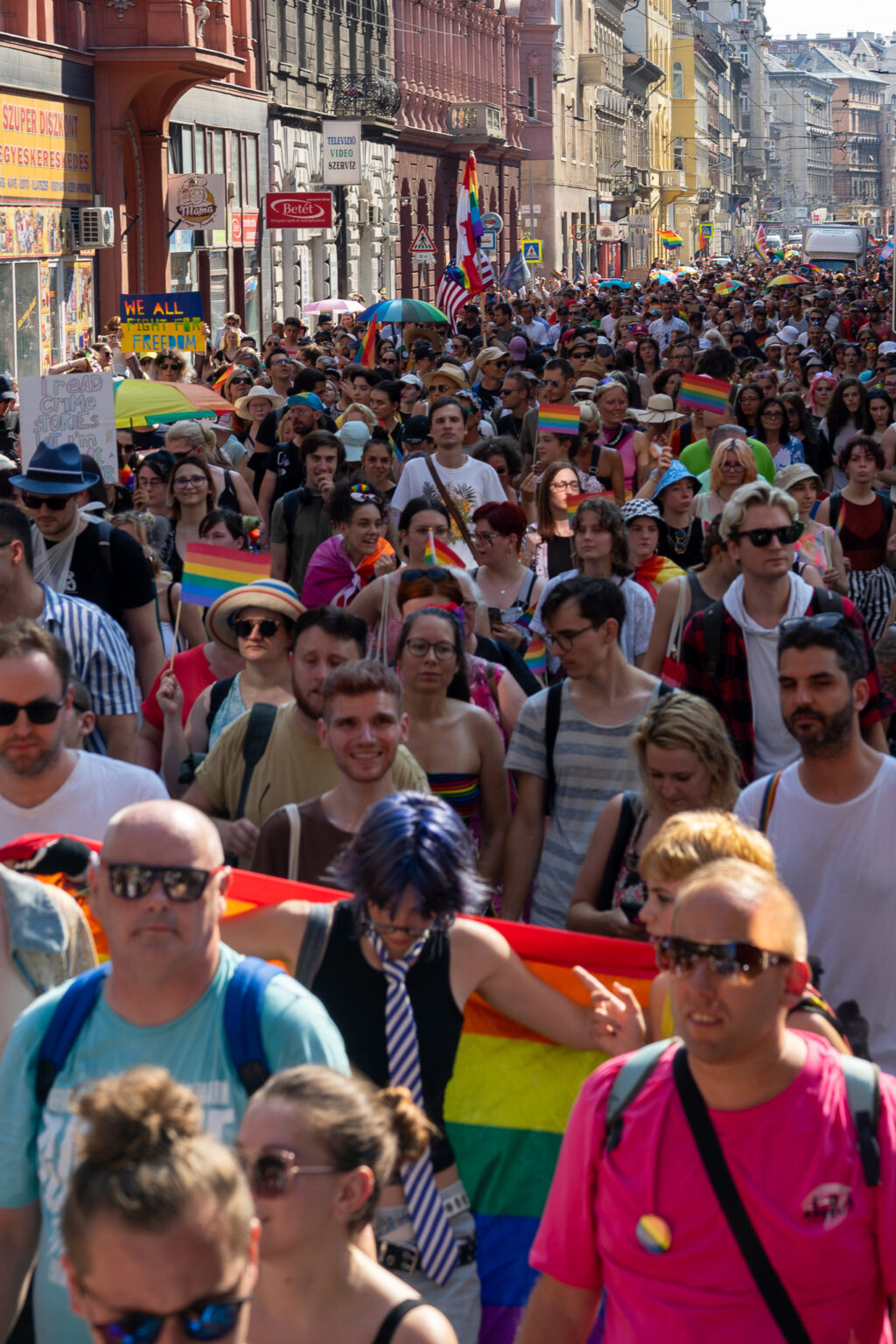
Hungarian Prime Minister Viktor Orbán’s threat to ban the 2025 Budapest Pride march has sparked outrage, with concerns over restrictions linked to the country’s anti-LGBTI law. ILGA-Europe stand in solidarity with the organisers of Budapest Pride, and assert the Hungarian people’s right to peaceful protest.
On 22 February, the Hungarian Prime Minister, Viktor Orbán, delivered a speech in which he threatened to ban Budapest Pride. During his State of the Nation address, Orbán said: “I advise the Pride organisers that they should not bother preparing for this year’s march. It would be a waste of time and money”.
While no legislation has yet been tabled to outright ban the 2025 Pride march, the government has referred to restrictions on its location, justifying this on the basis of the Hungarian anti-LGBTI law adopted in 2021, which bans promotion or portrayal of so-called “divergence from self-identity corresponding to sex at birth, sex change or homosexuality” to minors. This effectively bans depictions or “promotion” of LGBTI identities in the public space or anywhere where minors could be present or see LGBTI related content.
The European Commission has taken Hungary to court over this aforementioned law, and any restrictions or bans on Pride would also contravene laws related to freedom of assembly and freedom of expression, protected in both international law1 and Hungary’s own Constitution2.
Last year, 35,000 people marched, making Budapest Pride the largest recurring civil rights demonstration in the country. Activists anticipate that this year’s march will be Hungary’s largest Pride ever. Many Hungarians who have never attended any Pride marches are publicly declaring their intention to join because the government is threatening a ban.
Banning Pride in Budapest would eliminate a crucial platform for Hungarians to demand that their government listen to its people and uphold democratic values. It would mark a dangerous step toward restricting the right to protest and silencing dissent.
We affirm the value and importance of Pride as a peaceful gathering to assert the equal human rights of LGBTI people, in the context of demanding equal human rights for all. We decry any attempt to stamp out Pride as an attack on everyone’s right to freedom of assembly. We stand in solidarity with Budapest Pride, who will march on June 28, and are determined to fight all obstacles laid in front of them. We urge the authorities in Hungary and every democratic state to respect and protect the right to peaceful assembly. A society that upholds human rights for all is a stronger, more just society for everyone.
Retreat from development aid continues as more governments announce funding cuts
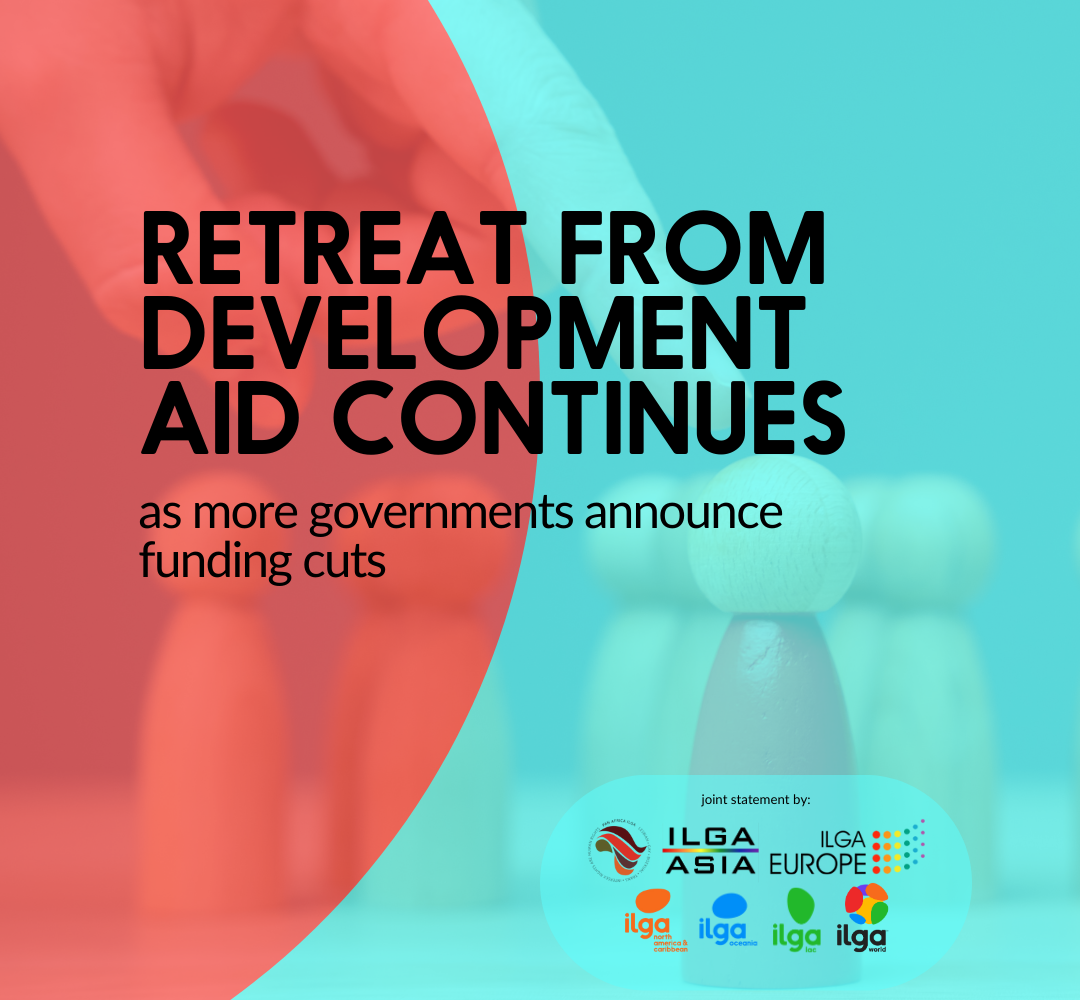
Joint statement by ILGA World, Pan Africa ILGA, ILGA Asia, ILGA-Europe, ILGA-NAC, ILGA Oceania, ILGALAC
Spanish version is available below.
Geneva, 11 March 2025 – ILGA expressed concern today as more governments follow the pattern of drastically cutting foreign aid. So far in 2025, in addition to the United States, the governments of the United Kingdom and the Netherlands announced severe decreases in their ODA (Official Development Assistance), using strong rhetoric while dropping their commitments towards marginalised communities. Switzerland, Belgium, and France have also announced plans or initiatives to follow suit. The impact on communities at risk and on civil society will be devastating.
“Governments are making the conscious choice to stop, or gut, investing in foreign aid,” said ILGA World executive director Julia Ehrt. “These cuts have very concrete consequences, for civil society at large and the provision of health services — including reproductive health — in ODA recipient countries.”
“Health and community centres will no longer be able to access resources and serve marginalised communities. Projects to advance their safety, well-being, and dignity will be shut down due to these government actions. Make no mistake: governments know that these choices will put thousands of people’s lives at risk – yet they’re withdrawing their long-standing support anyway without offering alternatives.”
Since January 2025, the human rights, aid, and development sectors have been facing unprecedented and multiple budget cuts and freezes – with a systematic defunding of work supporting LGBTI people, women and girls, and vulnerable people living in conflict zones and humanitarian crises. These are occuring at a time of a rise of harmful political narratives that target civil society and political participation, and create more space for democratic backsliding and decline in rule of law.
Across ILGA’s six regions, the impact has and continues to be far reaching and devastating, particularly to those who rely on member organizations for support and services. We have seen the closure of offices and reduction in staff and programs. In countries and communities in the global South that already struggle with systemic violence and discrimination, the financial hit amplifies and strengthens the movement against justice, rights and freedom.
Now, the United Kingdom will decrease spending on international development by 40% to only 0.3% of their GDP, to increase their defense expenses by a mere 10%. The decision has been decried by UK International Development Minister Anneliese Dodds herself, who resigned over the prime minister’s cuts to the aid budget. Meanwhile, the Netherlands will cut EUR 2.4 billion from 2027, claiming that “Dutch interests will take precedence”. Despite the majority of the Dutch Parliament has repeatedly expressed support for aid improving the health and equality of women, girls and LGBTI people, the Ministry’s policy letter on international development does not explicitly mention LGBTI communities even once.
Similarly, the Swiss government confirm it will slash its foreign aid budget by CHF 110 million this year; Belgium will cut its foreign aid budget by 25% over five years under a new coalition deal struck at the end of last month; and France is planning to reduce public development aid by up to 40 percent as part of its EUR 32 billion budget cuts for 2025.
While civil society organisations have been dealing with restructuring of development aid since 2020, with priorities rapidly shifting in the aftermath of the Covid-19 pandemic and the war in Ukraine, the public motivation given to justify these new cuts is unprecedented.
“We are particularly alarmed by the rhetoric used in these announcements,” Ehrt continues. “If States are so concerned with their national interests, they should know that inequality is the primary cause of social unrest. And yet, they choose to make the world more unstable and hence less secure by de-prioritising human rights and social justice work.”
“Civil society has been grappling with the effects of shrinking space globally. Countries that have traditionally supported civic organising are now withdrawing support. This will accelerate the decline of democracies worldwide. Every day, we hear news of organisations barely staying afloat and people counting on their support thrown into despair. The world is becoming more unstable by the day: this is not the time for States to turn their backs on those in need. We call on more donors to step in, and for States to listen to the needs of marginalised communities and provide them with a lifeline through sustainable funding.”
Notes to editors:
ILGA World is a worldwide federation of more than 2,000 organisations from over 170 countries and territories campaigning for the human rights of people with diverse sexual orientations, gender identities and expressions, and sex characteristics. https://ilga.org
In the text of this statement, “ILGA” refers to ILGA World, ILGA Oceania, ILGA Asia, Pan Africa ILGA, ILGA-Europe, ILGA North America & Caribbean; ILGA Latin America and the Caribbean.
Continúa el retroceso de la ayuda al desarrollo a medida que más gobiernos anuncian recortes de financiación
Declaración conjunta de ILGA Mundo, Pan Africa ILGA, ILGA Asia, ILGA-Europe, ILGA-NAC, ILGA Oceania, ILGALAC
Ginebra, 11 de marzo de 2025 – La ILGA ha expresado hoy su preocupación ante el hecho de que cada vez más gobiernos sigan el patrón de recortar drásticamente la ayuda exterior. En lo que va de 2025, además de Estados Unidos, los gobiernos del Reino Unido y de los Países Bajos han anunciado fuertes recortes en su AOD (Ayuda Oficial al Desarrollo), utilizando una retórica contundente mientras abandonan sus compromisos con las comunidades marginadas. Suiza, Bélgica y Francia también han anunciado planes o iniciativas para seguir su ejemplo. El impacto en las comunidades en riesgo y en la sociedad civil será devastador.
«Los gobiernos están tomando la decisión consciente de detener o reducir las inversiones en ayuda exterior», dijo la directora ejecutiva de ILGA Mundo, Julia Ehrt. «Estos recortes tienen consecuencias muy concretas para la sociedad civil en general y la prestación de servicios de salud, incluida la salud reproductiva, en los países receptores de AOD».
«Los centros de salud y comunitarios ya no podrán acceder a los recursos y atender a las comunidades marginadas. Los proyectos para mejorar su seguridad, bienestar y dignidad se cancelarán debido a estas acciones gubernamentales. No se equivoquen: los gobiernos saben que estas decisiones pondrán en peligro la vida de miles de personas, pero, aun así, están retirando su apoyo de larga data sin ofrecer alternativas».
Desde enero de 2025, los sectores de derechos humanos, ayuda y desarrollo se han enfrentado a múltiples recortes y congelaciones presupuestarias sin precedentes, con una retirada sistemática de fondos para el trabajo de apoyo a las personas LGBTI, las mujeres y las niñas, y las personas vulnerables que viven en zonas de conflicto y crisis humanitarias. Esto ocurre en un momento de auge de narrativas políticas dañinas en contra de la sociedad civil y la participación política, y crean más espacio para el retroceso democrático y el declive del Estado de derecho.
En las seis regiones de la ILGA, el impacto ha sido y sigue siendo de gran alcance y devastador, especialmente para aquellas personas que dependen de las organizaciones miembros para recibir apoyo y servicios. Hemos visto el cierre de oficinas y la reducción de personal y programas. En los países y comunidades del Sur global que ya luchan contra la violencia y la discriminación sistémicas, el golpe financiero amplifica y fortalece el movimiento contra la justicia, los derechos y la libertad.
Ahora, el Reino Unido reducirá el gasto en desarrollo internacional en un 40 % hasta solo el 0,3 % de su PIB, para aumentar sus gastos de defensa en apenas un 10 %. La propia ministra de Desarrollo Internacional del Reino Unido, Anneliese Dodds, que dimitió por los recortes del primer ministro en el presupuesto de ayuda, ha criticado la decisión. Mientras tanto, los Países Bajos recortarán 2 400 millones de euros a partir de 2027, alegando que «los intereses neerlandeses tendrán prioridad». A pesar de que la mayoría del Parlamento neerlandés ha expresado en repetidas ocasiones su apoyo a la ayuda para mejorar la salud y la igualdad de las mujeres, las niñas y las personas LGBTI, la carta política del Ministerio sobre desarrollo internacional no menciona explícitamente a las comunidades LGBTI ni una sola vez.
De manera similar, el gobierno suizo confirmó que recortará su presupuesto de ayuda exterior en 110 millones de francos suizos este año; Bélgica recortará su presupuesto de ayuda exterior en un 25 % durante cinco años en virtud de un nuevo acuerdo de coalición alcanzado a finales del mes pasado; y Francia tiene previsto reducir la ayuda pública al desarrollo hasta en un 40 % como parte de sus recortes presupuestarios de 32 000 millones de euros para 2025.
Si bien las organizaciones de la sociedad civil han estado lidiando con la reestructuración de la ayuda al desarrollo desde 2020, con un rápido cambio de prioridades a raíz de la pandemia de la Covid-19 y la guerra en Ucrania, la motivación pública dada para justificar estos nuevos recortes no tiene precedentes.
«Estamos especialmente alarmados por la retórica utilizada en estos anuncios», continúa Ehrt. «Si los Estados están tan preocupados por sus intereses nacionales, deberían saber que la desigualdad es la principal causa de malestar social. Y, sin embargo, optan por hacer el mundo más inestable y, por tanto, menos seguro, al restar prioridad a los derechos humanos y a la labor de justicia social».
«La sociedad civil ha estado lidiando con los efectos de la reducción del espacio a nivel mundial. Los países que tradicionalmente han apoyado la organización cívica ahora están retirando su apoyo. Esto acelerará el declive de las democracias en todo el mundo. Todos los días, escuchamos noticias de organizaciones que apenas se mantienen a flote y de personas que cuentan con su apoyo y se sienten desesperadas. El mundo se vuelve más inestable cada día: este no es el momento para que los Estados le den la espalda a las personas que están necesitadas. Hacemos un llamamiento a más donantes para que intervengan, y a los Estados para que escuchen las necesidades de las comunidades marginadas y les proporcionen un salvavidas a través de una financiación sostenible».
Notas para les editores:
ILGA Mundo es una federación mundial de más de 2000 organizaciones de más de 170 países y territorios que hacen campaña por los derechos humanos de las personas con diversas orientaciones sexuales, identidades y expresiones de género y características sexuales. https://ilga.org
En el texto de esta declaración, «ILGA» se refiere a ILGA Mundo, ILGA Oceanía, ILGA Asia, Pan Africa ILGA, ILGA-Europe, ILGA Norteamérica y el Caribe (ILGA-NAC; ILGA América Latina y el Caribe (ILGALAC).
From 9 Activists to a Worldwide LGBTI Movement
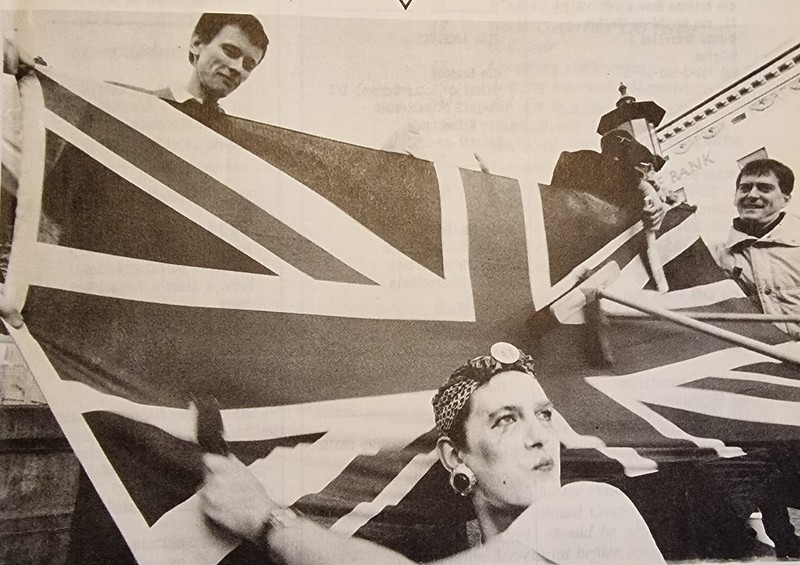
A newly released archive of over 2,000 photographs charts a journey that grew from a small meeting of activists in the UK almost 50 years ago to an international LGBTI movement still striding forward for human rights and equality today.
In 1978, a pivotal moment in LGBTI history unfolded in the United Kingdom, when activists from nine countries gathered in the city of Coventry to establish the International Gay Association (IGA), launching a coordinated global effort for LGBTI rights. Acting on the need for a dedicated space for lesbian activism, the International Lesbian Information Service (ILIS) was founded in 1980. Over time, IGA evolved to become the International Lesbian, Gay, Bisexual, Trans and Intersex Association (ILGA), integrating broader identities into its advocacy. In 1996, ILGA-Europe was established as its regional branch, responding to the distinct political and legal landscapes of the European movement.
The ILGA & ILIS History Collection, meticulously curated by long-time activist Nigel Warner, offers a profound insight into these formative years of the LGBTI movement. Nigel’s dedication to documenting and preserving this history stems from his deep ties to ILGA, where he served in various roles, including overseeing its finances from 1987 to 1994. He also served in ILGA-Europe, as board member and treasurer from 2000 to 2005, and as our representative at the Council of Europe from 1998 to 2018.
Comprising over 2,000 photographs contributed by 80 activists, the collection documents significant events and themes from 1978 through the 1990s. It not only shows the public demonstrations and conferences but also provides contextual information, including contemporary documentation and personal accounts, painting a comprehensive picture of the early international LGBTI movement.
Today, as we witness a resurgence of right-wing ideologies and policies threatening LGBTI rights on an international scale, this collection serves as a poignant reminder of our community’s resilience. The challenges we face are formidable, with countries electing openly LGBTI-phobic leaders, and enacting laws that roll back hard-won rights. Yet, the history captured in these photographs reminds us that the movement has weathered significant adversities before.
The ILGA & ILIS History Collection stands as a testament to the power of solidarity, courage, and unwavering commitment. And if we remember our past, we can inform our present and inspire our future. As we navigate the current challenges, let this collection be a source of strength and a reminder that, together, we can overcome adversity and continue the march toward equality.
Explore the ILGA & ILIS History Collection and join us in honouring the legacy of those who paved the way for the rights we uphold today.
European court rules teacher’s dismissal over gay blog violated free speech

The European Court of Human Rights rendered a judgement in a case where the Polish authorities fired a school teacher for writing on a blog for adult gay men featuring some sexually explicit content.
In February, in the case of P. v. Poland, the European Court of Human Rights (ECtHR) ruled that Poland violated Article 10 of the European Convention on Human Rights (freedom of expression). The case involved a secondary school teacher who was dismissed for writing an illustrated diary under a pseudonym on a public blog intended for adult gay men, which included some sexually explicit content.
The authorities considered that the applicant’s blog was an affront to the domestic social mores prevailing in Poland because it talked in explicit terms about sexuality. The applicant argued that the authorities had wrongly perceived his blogging activity as attesting to his lack of morals and posing a threat to the ethical education of his students, and that the sanction imposed on him was disproportionate in the circumstances of the case.
ILGA-Europe, together with KPH (Campaign Against Homophobia) and PSAL (the Polish Society of Anti-Discrimination Law) filed a third-party intervention in the case. The intervention informed the European Court about the situation of LGBTI people in Poland and highlighted the States’ obligations under international law and the European Convention on Human Rights (ECHR) framework. It emphasised the States’ obligation to provide effective measures to protect LGBTI persons’ rights to private life and freedom of expression, and to unmask possible discriminatory motives in case of interference with these rights.
While the European Court considered that there was no proof that the applicant’s sexual orientation had been the real reason for his dismissal, it still took into account the fact that the blog depicted same-sex relations when ruling on the breach of his freedom of expression. The Court relied on our intervention, which reminded that the Council of Europe’s Commissioner for Human Rights and the EU Fundamental Rights Agency reported that the prevailing social attitude towards LGBTI persons in Poland was negative. Owing to this, the Court considered important to refer to its previous ruling in the Macatė v Lithuania case, which found a violation of Article 10 as a result of restrictions on the distribution of a book that depicted a same-sex marriage.
The Court considered that the applicant’s dismissal was disproportionate, especially as he did not have any previous record of disciplinary sanctions. It concluded that the Polish authorities did not provide relevant and sufficient reasons for dismissing the applicant from his position as his blogging activity did not threaten the protection of morals of minors in a manner justifying the sanction imposed on him.
According to Annamaria Linczowska, Advocacy and Litigation Officer at Campaign Against Homophobia: “The case itself was a vivid example of discrimination against LGBT+ persons in Poland that time. Using a very serious mechanism – the teacher’s dismissal – the school and later, the commissions, interfered with the teachers’ freedom of speech, his right to be vocal in public about same-sex relationships. The case illustrates the obstacles and discrimination LGBT+ people face in the workplace and in education in Poland. Even though we share the ECtHR’s view regarding the country’s positive obligation to introduce legal tools to ensure respect of private life and freedom of expression, KPH believes that in this case it should have considered also the violation of articles 8 and 14 of the Convention by asserting the fact that applicant’s sexual orientation was a real reason for his dismissal”.
See KPH’s full statement here.
According to Marie-Hélène Ludwig, Senior Strategic Litigation Officer at ILGA-Europe: “We are glad that the Court took into account our joint third-party intervention describing the negative social attitude towards LGBTI persons prevailing in Poland to rule that the domestic authorities breached the applicant’s freedom of expression by dismissing him from his position.”
ILGA-Europe Statement: Turkey is detaining LGBTI+ activists and journalists, and targeting basic rights

The Turkish government has intensified its repression of LGBTI+ human rights defenders, detaining activists and introducing draconian laws that further restrict legal gender recognition, trans healthcare, and free expression. The proposed measures mirror anti-LGBTI+ laws in Russia and Hungary, prompting urgent calls for action.
The last two weeks have seen an increasingly severe crackdown on LGBTI+ human rights defenders and activists in Turkey. This comes during a time when the Turkish government is eroding civic rights and freedoms, including detaining journalists, opposition politicians, and targeting civil society organisations (CSOs) through smear campaigns and further restrictive legislation.
On 18 February, journalist and Editor-in-Chief of KaosGL.org, a news portal dedicated to LGBTI+ issues, Yıldız Tar, was arrested and accused of “membership in a terrorist organisation”. They were arrested alongside a number of journalists, activists (including Erkin – a trans activist), artists and opposition MPs, amounting to 52 arrests that day.
The following week, on 27 February, draft amendments of the Turkish government were leaked to the press which aim to amend the Criminal and Civil Codes to further restrict access to legal gender recognition and trans-specific healthcare, ad criminal sanctions to these as well as criminal sanctions for “any person who publicly encourages, praises or promotes attitudes and behaviors contrary to innate biological sex and public morality” and “persons of the same sex [who] perform an engagement or marriage ceremony”.
The further restrictions to accessing legal gender recognition are:
- Increasing the age of eligibility from 18 to 21.
- Reintroducing mandatory sterilisation (a provision previously annulled by the Constitutional Court and found to violate the European Convention of Human Rights by the European Court of Human Rights (ECtHR)).
- Introducing a lengthier process for approval, requiring an official medical board report to be issued by a “full-fledged training and research hospital designated by the Ministry of Health as a result of four evaluations to be made at least three months apart” (previously it was to be obtained from a training and research hospital), with no maximum duration set, potentially allowing indefinite delays.
Additionally, a new requirement for accessing trans-specific healthcare is introduced, stipulating that it can only be carried out after permission is obtained from one of the above-described hospitals designated by the Ministry of Health.
The criminal sanctions being introduced include sentences of:
- 3-7 years imprisonment and a judicial fine from 1,000-10,000 days for anyone who commits gender reassignment surgery contrary to the new provisions, with the recipient of the surgery facing 1-3 years imprisonment.
- 1-3 years imprisonment for “Any person who publicly encourages, praises or promotes attitudes and behaviors contrary to innate biological sex and public morality”.
- 1.5-4 years imprisonment for “persons of the same sex [who] perform an engagement or marriage ceremony”.
These new legislative restrictions will further restrict the already inaccessible process of legal gender recognition and access to trans-specific healthcare in Turkey (see our previous statement regarding this), making legal and medical transition nearly impossible.
The requirement for mandatory sterilisation and medical certification in order to access legal gender recognition has already been deemed abusive by international human rights bodies. ECtHR case law is clear that such requirements are in violation of the right to privacy and the right to bodily integrity. The Parliamentary Assembly of the Council of Europe (PACE) has called on its member states to “develop quick, transparent and accessible procedures, based on self-determination”. The UN Independent Expert on Protection Against Violence and Discrimination Based on Sexual Orientation and Gender Identity has also recommended that legal gender recognition should be based on self-determination, be a simple administrative process, and not require applicants to fulfil abusive requirements such as surgical interventions or requiring medical certification.
A clear discriminatory attack
The new proposal for criminal sanctions for anyone “who publicly encourages, praises or promotes attitudes and behaviors contrary to innate biological sex and public morality” will impact ordinary people wishing to dress or be called in a way that is different from their biological sex assigned at birth, but also it will also target any debate, awareness raising, or portrayal of topics related to challenging gender binarism, which will impact LGBTI+ people, LGBTI+ CSOs, journalists, and other organisations or people defending freedom of expression.
The criminalisation of symbolic engagement and marriage ceremonies represents a clear discriminatory attack against the LGBTI+ community, who simply wish to honour their partnerships and love in a country where there is no possibility for a legal recognition of same-sex relationships.
The proposals’ provisions are similar to the anti-”LGBTI propaganda” laws seen already in Russia, Hungary and Bulgaria. The European Court of Human Rights has already ruled the Russian law to violate freedom of expression and the prohibition of discrimination, and the EU has launched infringement proceedings against both Hungary and Bulgaria for their laws.
ILGA-Europe calls on the Ministry of Justice to indefinitely withdraw the draft amendments and the Turkish parliament to reject the proposed legislative amendments, which introduce further discrimination against the LGBTI+ community, run contrary to international fundamental rights standards and decisions of Turkey’s Constitutional Court, and which will make the lives of LGBTI+ people in Turkey even more arduous, without providing any additional benefits to the general public.
We call on the Turkish government to immediately release Yıldız Tar and stop crackdowns on legitimate civil society organisations, journalists and others forming part of democratic checks and balances.
The Turkish government should ensure that everyone is equal under the law, and introduce provisions granting equality in line with the jurisprudence of the European Court of Human Rights, including non-abusive and accessible access to legal gender recognition, trans-specific healthcare, legal recognition of partnerships and the right of all to freedom of expression and information.
How you can help
Bring attention to these developments via media and social media:
- Demand the immediate release of Yıldız Tar and Erkin
- Speak out against the crackdown on CSOs, journalists and human rights defenders
- Speak out against the proposed anti-LGBTI+ legislation
Read our press release here.
Statement: ILGA-Europe Condemns Escalating Repression of Civil Society in Kazakhstan
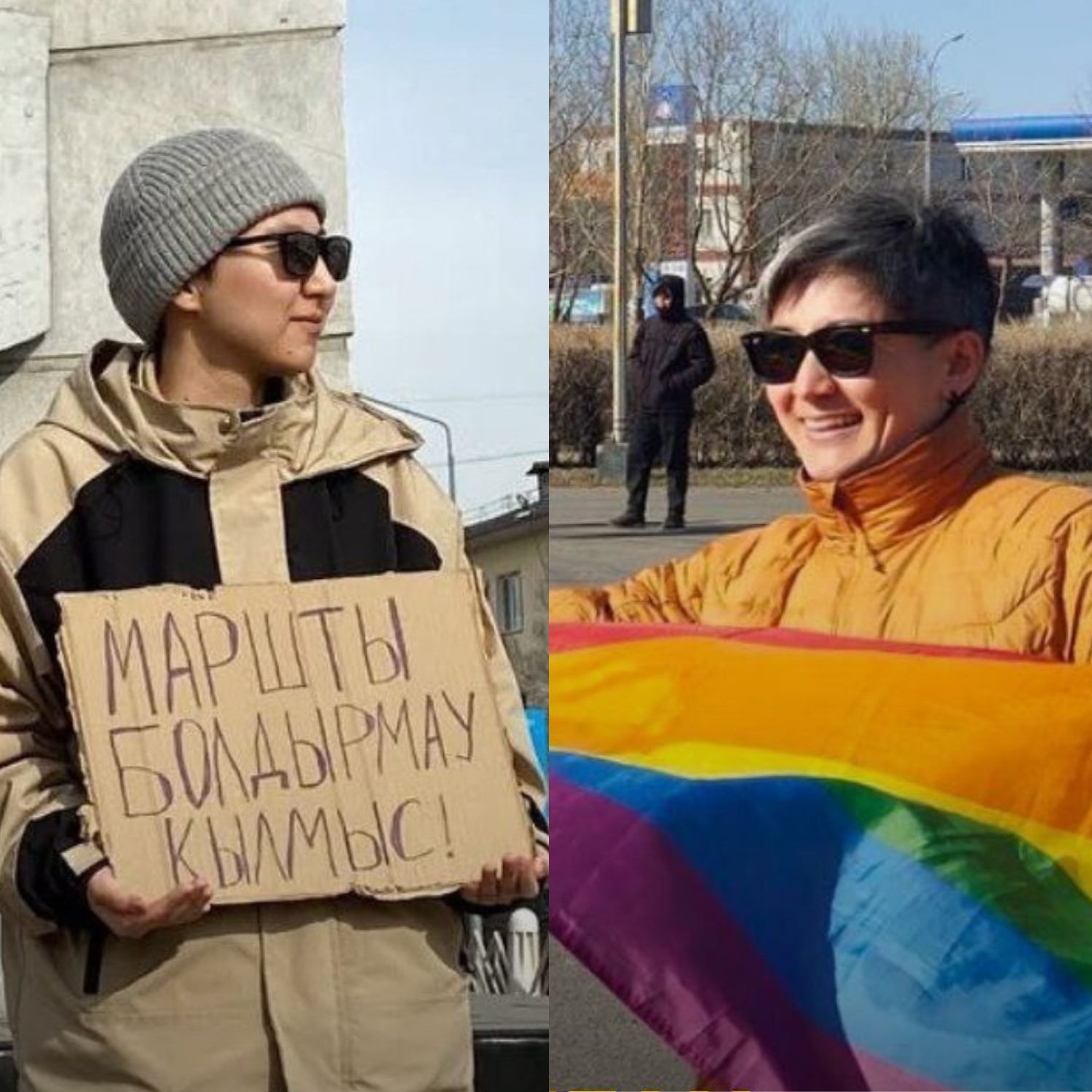
Call for Immediate Release of Detained Activists and an End to Arbitrary Persecution
ILGA-Europe strongly condemns the escalating repression and intimidation of civil society in Kazakhstan, exemplified by the recent detention of Zhanar Sekerbayeva and Aktorgyn Akkenzhebalasy – activists from Feminita, an informal LBTQ civil society initiative. Their arbitrary arrests and rushed sentencing to 10 days of administrative detention for a peaceful protest in 2024 mark yet another attack on fundamental freedoms.
These are not an isolated incident. It is part of a broader pattern of persecution, including arrests, fines, physical attacks, police raids, and legislative proposals designed to stifle legitimate civil society organisations advocating for equality—whether for women, LGBT individuals, or other marginalised groups. These particular arrests follow a recent unpunished violent attack on Feminita’s community event and another court decision to fine its activist, Gulzada Serzhan, for “managing an unregistered public association”. Activists anticipate further arrests ahead of Women’s Day demonstrations on 8 March.
We stand in full solidarity with LGBTI and wider civil society in Kazakhstan, who are facing an alarming crackdown on their rights and safety. Reminding the government of Kazakhstan of its international legal obligation to respect the peaceful expression of opinions, we call for the immediate release of detained activists, including Zhanar Sekerbayeva and Aktorgyn Akkenzhebalasy, an end to arbitrary prosecutions, and accountability for those enabling and perpetrating these repressions. We will be working with EU institutions to ensure that the respect for fundamental rights and freedoms, including freedom of assembly, is an integral part of relations with Kazakhstan.
Rainbow Digest February 2025
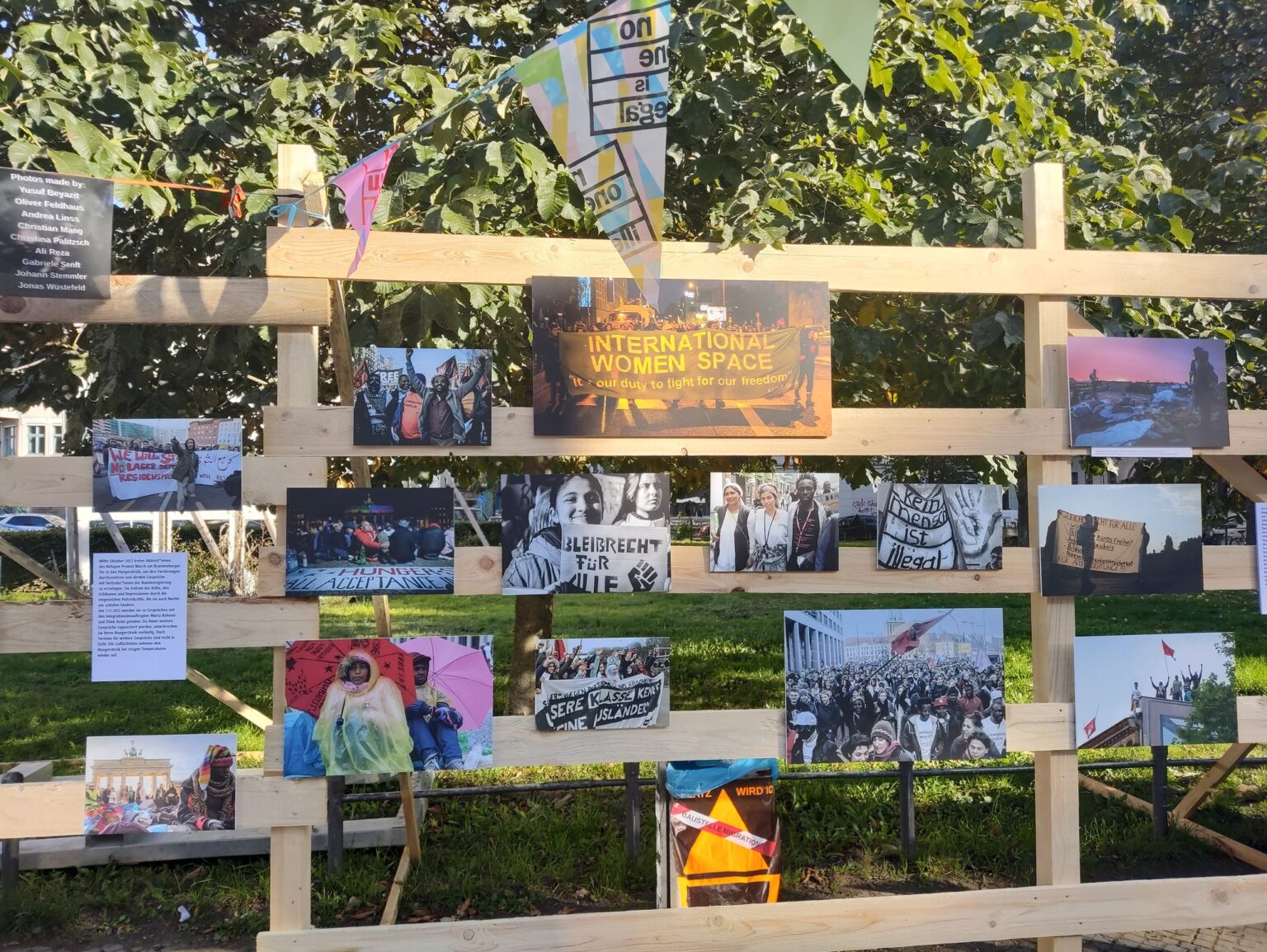
New era of coordinated attacks on foundations of fundamental rights, our new report finds
Released on 18 February, ILGA-Europe’s ‘Annual Review of the Human Right Situation of LGBTI People in Europe and Central Asia’ warns of a new era in which rising anti-LGBTI legislation threatens fundamental rights.
Governments are fueling anti-LGBTI sentiment to push laws that restrict freedom of expression, association, and fair elections.
“What begins as an attack on LGBTI rights rapidly grows into a wider assault on the rights and freedoms of all individuals in society. This is not just an LGBTI issue; it is a crisis for human rights and democracy as a whole.”
Chaber, ILGA-Europe’s Executive Director
ILGA-Europe news
How to start a social entrepreneurship?
Is your organisation considering starting up a social enterprise? Join our online session on March 13 to discover how to launch and manage social enterprises.
Register before 10 March.
New funding for racialised LGBTI communities
Our new program will support groups working for and with racialised LGBTI communities in Europe.
Save the date for our Equality Fundraiser
Join us for an evening of support for LGBTI rights at the 2025 ILGA-Europe Equality Fundraiser, on Thursday 26 June in Brussels.
Latest news
ASYLUM
The realities faced by racialised LGBTI asylum seekers
In the first of a new series of blogs, highlighting the work of LGBT organisations tackling injustice, racism, and discrimination, we explore how The Break Isolation Group in Germany supports racialised LGBTI asylum seekers.
BIAS-MOTIVATED VIOLENCE
Black trans woman on trial needs support and solidarity
Cleo, a black trans woman, has been in custody in Germany since May last year, only under general suspicion and without any solid evidence. Her friends started a petition calling for the immediate release of Cleo and demanding more humane conditions for her.
DATA COLLECTION
New research on bi+ movement in Europe
The survey, conducted by Bi+ Equal, shows glaring gaps and points the way forward for a movement that’s often sidelined in the broader LGBTI movement.
Take part in the research on non-binary people and the law
ILGA-Europe, TGEU and OII Europe are calling non-binary people living in Europe and Central Asia to fill out an online survey about their experiences of the law.
EQUALITY AND NON-DISCRIMINATION
European Commission unilaterally gives up on anti-discrimination law
On 12 February, the European Commission publicly announced its intention to withdraw the proposal for the Equal Treatment Directive, which aims to close legal gaps in EU anti-discrimination law.
Stop EU’s equality betrayal and defend anti-discrimination now!
Together with other equality networks, we launched a petition calling for European leaders to reaffirm their commitment to a Union of Equality.
New judgement on Russia’s failure to protect the privacy of personal data
The European Court of Human Rights made a judgment in the case of Bazhenov and Others v. Russia, which found a violation of the right to private life. The ruling highlights the failure of Russian authorities to respond adequately to the non-consensual sharing of the applicants’ private data—including their sexual orientation—by private individuals on social networks.
RULE OF LAW
New report highlights threats to democracy and the instrumentalisation of LGBTI people
ILGA-Europe submitted our annual contribution to the European Commission’s consultation ahead of this year’s Rule of Law report. Violence and restrictive legislation against LGBTI individuals are increasing, undermining the rule of law.
Notice board
- Rainbow Mind UK is organising an online workshop on radical self-care on 26 March for LGBTQIA+ BAPOC (Black, Asian, Person of Colour) and racialised activists based in Europe. Register now.
- Registrations are open for Ex Aequo’s LGBTIQ+ health conference, taking place in Brussels between 21-23 May. Apply for scholarships by 20 February.
- IGLYO is calling for presentations and expressions of interest for their upcoming LGBTQI Inclusive Education Conference, which will take place 25-27 June 2025 in Barcelona. Find out more.
- The EGLSF – European Gay & Lesbian Sport Federation is inviting LBTI+ women from Europe to take part in their research about the needs of LBTI+ women in sport, barriers and challenges. Complete the survey now.
- PICUM – Platform for Undocumented Migrants is looking for a Finance and Human Resources Officer. Read more and apply by 12 March.
- GiveOut is looking for a Head of Philanthropy to join their team in London. Apply here before 24 March.
- Social Platform is hiring a Policy and Projects Officer and a Communications Assistant for their secretariat in Brussels. Read more and apply by 13 March.
- Lawyers for Lawyers opened the applications for the Access to Justice Training 2025 —a fully funded, one-week training course designed exclusively for young lawyers dedicated to defending LGBTQIA+ rights. Apply before 9 April.
How BIPOC queer activists are using artivism as resistance

Art has always been a powerful tool of resistance, allowing the oppressed to share their truths and experiences. For many Black, Indigenous, or People of Colour (BIPOC1) LGBTI activists, it is more than expression—it’s a survival tool, a way to build community, a political statement, and a means to reclaim joy.
With this new blog series, we’re sharing insights from the work of LGBTI organisations tackling injustice, racism, and the unique challenges faced by racialised LGBTI communities in Europe. We hope their stories and practices will inspire and resonate. We believe that solutions and approaches that include a few will pave the way and point to the solutions for many. You can read the previous blog in the series here.
Across Europe, LGBTI collectives are harnessing film, music, poetry, and performance to tell their stories, connect with others, and challenge dominant narratives. In today’s blog, we explore how four different racialised queer groups use art in their activism.
Wassla Ciné Queer: Film as a lifeline
For Wassla, a queer cultural organisation based in Paris that works with migrants, film is more than entertainment – it is a lifeline. Their initiative, Ciné Queer, curates short and feature-length movies directed by Arab filmmakers that explore LGBTQIA+ experiences in Arabic-speaking communities. More than just screenings, these events spark critical conversations. Often followed by discussions with directors, the gatherings create a space where people can process what they see on screen, debate social issues, and reflect on their own realities.
At Wassla, there is no distinction between volunteers and participants; everyone plays a role in shaping the community. Many of their screenings feature works by their own members, amplifying voices that might otherwise remain unheard. With audiences sometimes reaching 80 people or more, Ciné Queer combats isolation and fosters solidarity in a safe and empowering space. For Wassla, film is not just about representation, it is about connection, healing, and breaking the silence.
Sadiqa and LIMBO queer exilic narratives: Music as a battle cry
“I am a reality, not an illusion.” These words, from Sadiqa’s song The Voice of the Queer, embody the defiant spirit of many BIPOC queer artists who refuse to be erased. Sadiqa was part of Art for Change, an initiative that examined art as a tool for solidarity and engaged scholarship. During the COVID-19 pandemic, Art for Change brought together queer refugee artists, offering a space to create and share music, poetry, film, and design.
That work continues through LIMBO queer exilic narratives, a platform for queer refugees in the Netherlands to tell their stories through art, to challenge the laws and structures that criminalise their existence, and to carve out spaces of belonging. Sadiqa’s music does not ask for permission; it demands recognition. Their lyrics are a protest against laws such as Article 489 of the moroccan law, which criminalises the sexuality of queer people, and a call out to all systems of oppression that seek to control and suppress marginalised communities:
“The voice of the queer is everywhere, calling against oppression… now we are all aware of the system’s malfunctions”
صوت الكوير في كل مكان، ينادي ضد الطغيان… مازال الحق يبان، و كلشي يرجع مزيان
Rainbow Mind UK: Art as radical self-care
For Rainbow Mind UK, creativity is a crucial part of their radical self-care approach. Working with LGBTI people of colour and refugee communities in the UK, they realised that traditional self-care practices often required participants to re-live painful experiences. Instead, they turned to art and music as a means of engagement, connection, and healing.
One of their most popular practices is the Queer Pencil Disco, where participants use drawing as a form of self-expression, and another involves recalling empowering song lyrics when words are hard to find. For a group of LGBTQ+ refugees, ‘Flowers’ by Miley Cyrus became an anthem of resilience. These practices offer creative expression and make self-care accessible and joyful. Rainbow Mind UK uses art to help people take control of their stories without re-experiencing trauma.
Break Isolation Group: Slam poetry as protest
For Break Isolation Group, spoken word and slam poetry are forms of protest, catharsis, and survival. Many members are queer racialised asylum seekers and refugees who face state repression, deportation threats, and systemic silencing in Germany.
Ann and Rose from Break Isolation Group explain that poetry provides them with a platform to express anger, tell their stories, and build community when traditional political spaces are closed to them.
“We are not able to speak openly in many spaces anymore,” Ann explains. “So now, we turn to slam poetry. Art allows us to purge, to bring experiences to life in a way that just talking about them doesn’t.”
For Break Isolation Group, redefining what counts as ‘art’ is part of their activism. Rose points out that in many BIPOC cultures, storytelling has always been woven into song and dance, but Western frameworks often fail to recognise these as legitimate art forms. “Our ancestors sent messages through music; this is nothing new.” Through their work, Break Isolation Group challenges Eurocentric definitions of art and reclaims creative expression on their own terms.
New funding
ILGA-Europe continues its commitment to providing funds and support for this part of LGBTI movement that addresses intersectional impacts of injustice, racialisation, racism and supremacy. On 30 January 2025, we launched a new call for proposals to support European groups working for and with racialised LGBTI communities. This is the third cycle of this programme. Apply by 30 March 2025, 23.59 CET.
- BIPOC is one of many abbreviations that our partner organisations use to self-identify the racialised communities they belong to. We use it here while acknowledging that there are other terms that might be more apt in different contexts by various groups, such as BAME (Black, Asian, and minority ethnic), BAPOC (Black, Asian and People of Colour), LGBTQI+ individuals of African descent, Arab queers from SWANA region (Southwest Asian and North African region) to name a few that are used by organisations we work with. ↩︎
Social entrepreneurship – What it is and how to start?
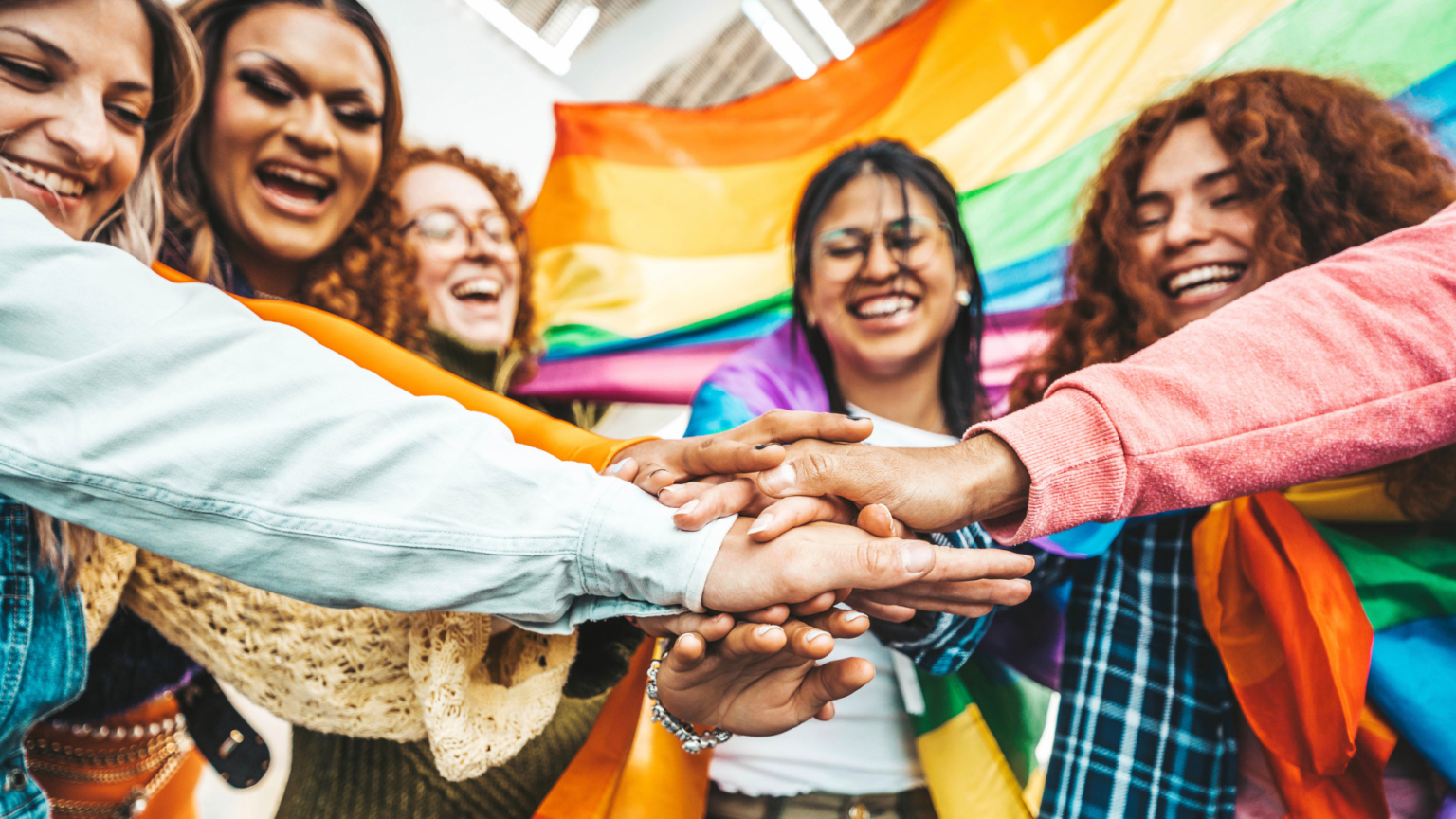
We’ll start with two inspiring speakers from two different organisations. Each will share their journey in launching and managing social enterprises, including the challenges they faced, key milestones they achieved, and the skills and resources that made it all possible. Afterward, you’ll have the chance to dive deeper in discussions with the speaker whose experience resonates most with you.
The session is designed for LGBTI groups and organisations in Europe and Central Asia considering starting up a social enterprise.
Our speakers will be:
- Amir Shaikezhanov is an LGBT activist from Kazakhstan who runs Amirovki, the biggest LGBT bar in Central Asia, and Safe Space Almaty, LGBT community center in Almaty, which also serves as a free-of-charge space for different activities organised by LGBTI activists and groups. Amir was also the project director of Amanbol, the first HIV self-testing program in Kazakhstan, which distributed over 11,000 HIV self-test kits for men who have sex with men, transgender and nonbinary persons.
- Ivan Dimov – Founder and Executive Director of Single Step Foundation in Bulgaria and CEO of The Steps, the largest LGBTI social enterprise in Europe. His prior professional career is in the field of finance: as an investment banker and VC in New York and Sydney, Australia. He served as Treasurer of the Executive Board of ILGA-Europe between 2020 – 2024.
Takeaways
- Diverse perspectives on social entreprise dynamics
- Practical tips and best practices for sustainable growth
- Real-world inspiration to explore launching your own social enterprise
The session will be in English, hosted by Seka Topal, Programs Officer at ILGA-Europe.
Please register here by March 10 the latest.
A Call for Urgent Action Against Rising Anti-LGBTI Hate
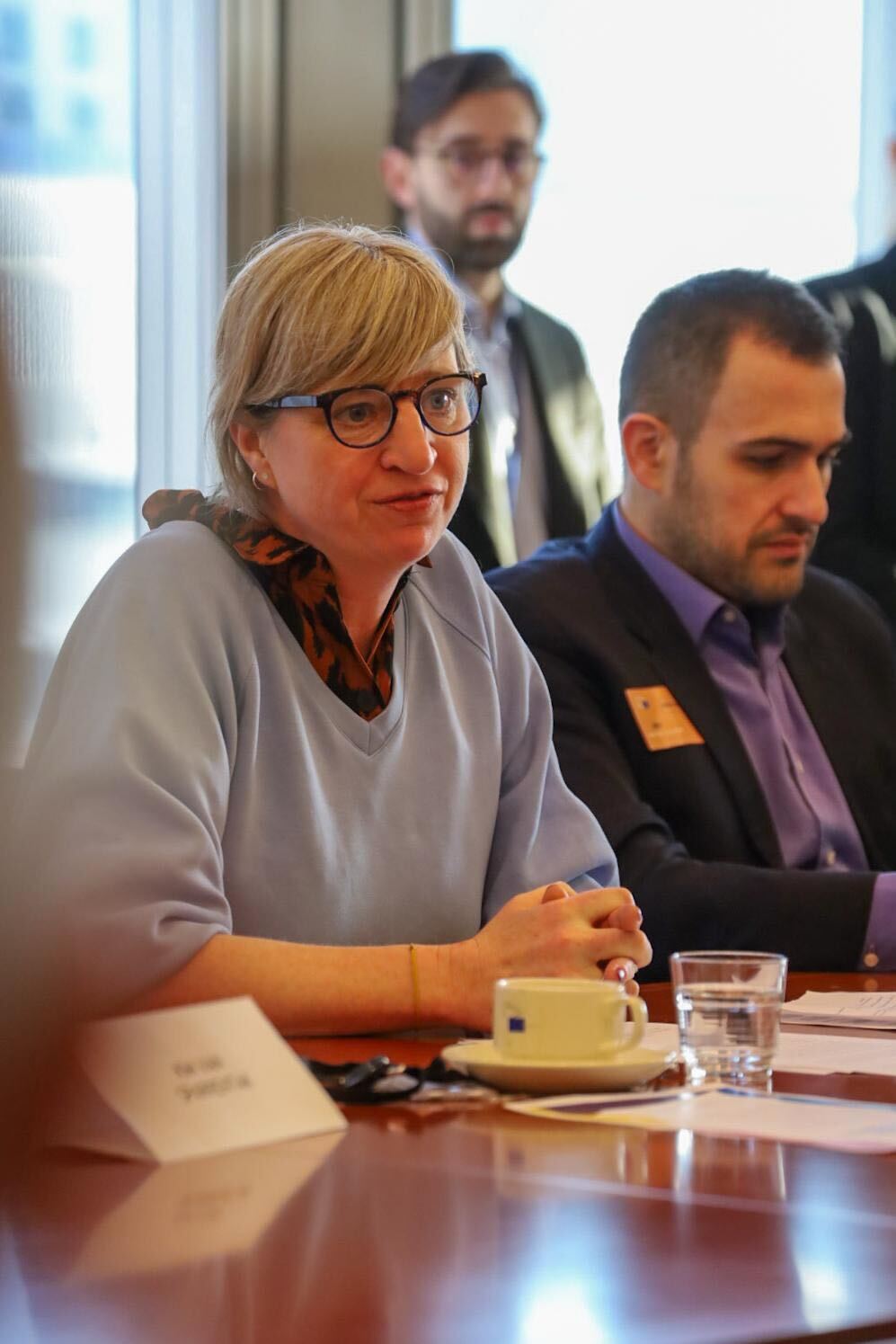
At the launch of our 2025 Annual Review, ILGA-Europe’s Advocacy Director, Katrin Hugendubel delivered a stark warning about the growing wave of anti-LGBTI hate, misinformation, and legislative attacks across the region. As governments weaponise discrimination to undermine democracy, she called for urgent political action to protect fundamental rights and freedoms. In today’s blog we share the full text of her speech.
Our Annual Review of the Human Rights Situation of LGBTI People in Europe and Central Asia, released this week, strives to provide a clear and comprehensive overview of the realities on the ground. The findings are based on individual cases, notable events, and legislative, political, and social developments, as well as data gathered from our own work and insights from LGBTI activists across the 54 countries covered in the report.
In recent years, LGBTI activists and organisations across Europe and Central Asia have repeatedly highlighted the worrying rise and normalisation of hate and violence in our region, including numerous attacks on LGBTI rights that systematically undermine fundamental freedoms.
The 2025 Annual Review once again evidences a clear increase in hate and violence. Furthermore, it illustrates how ongoing LGBTI-phobic hate and misinformation campaigns have laid the groundwork for legislation such as anti-propaganda and foreign agent laws. These laws, which ostensibly target LGBTI rights, actually extend much further—introducing censorship, stigmatisation, and persecution of human rights defenders and opposition voices; anti-democratic interference in elections through disinformation campaigns; and, ultimately, laws that erode fundamental freedoms and the principles of democracy. LGBTI rights are being used as an entry point for broader repressive measures.
LGBTI-phobic hate speech, sexism, and misogyny are increasingly normalised, often fuelled by public figures, including political and religious leaders and state institutions. Politicians in several countries, including Austria, Belgium, Bosnia & Herzegovina, Czechia, Moldova, and Romania, have weaponised discriminatory narratives against LGBTI people during election periods.
To cite just a few examples: in Austria, the far-right FPÖ spoke of “transgender brainwashing” and sought to cut taxpayer funding for what it termed “queer experiments”. In Belgium, Vlaams Belang repeatedly invoked the notion of “gender madness”. The President of Republika Srpska in Bosnia & Herzegovina was fined for hate speech during the election campaign.
The Georgian Elections Observatory (GEO), which focuses on fact-checking pre-election narratives, analysed statements made by senior members of the ruling Georgian Dream party, revealing that ‘LGBT propaganda’ was framed as a Western imposition and linked to a perceived threat to national survival. A similar misinformation campaign in Moldova suggested the country would be overrun by the Western LGBTI agenda ahead of the October elections. In Romania, Călin Georgescu’s electoral campaign during the first presidential election round intensified hate speech against the LGBTI community, even advocating for the re-criminalisation of homosexuality in the Penal Code.
Hate crimes and violent incidents have been reported in the vast majority of countries covered in this report. In Albania, these include stoning attacks against lesbian activists and physical assaults on trans women, with no accountability measures taken. A migrant trans woman was murdered in a hotel room in Copenhagen. Just one day after the Georgian Parliament passed its anti-LGBTI law, celebrity trans woman Kesaria Abramidze was found brutally murdered in her apartment.
In Armenia, while the successful prosecution of the country’s first hate crime against a gay man marks progress, violence against trans people remains unaddressed, and draft anti-discrimination legislation continues to stall. In Germany, during Pride season (June–September 2024), the Centre for Monitoring, Analysis and Strategy documented a surge in extremist mobilisation against Pride events across 27 cities, involving violence and intimidation. The Federal Ministry of the Interior reported 22 protests in this period.
The French Ministry of the Interior released a report showing a 13% increase in anti-LGBTI offences in 2023, with assaults, threats, and harassment rising by 19%, totalling 2,870 cases. The country chapter for France this year lists numerous homo- and transphobic attacks, including two transfemicides. Similarly, Italy recorded a troubling increase in bias-motivated violence in 2024.
Governments are actively fuelling anti-LGBTI sentiment, often followed by legislative proposals restricting freedom of expression, association, and fair elections. In seven countries across the region, so-called ‘LGBT propaganda’ laws, which seek to criminalise LGBTI visibility, ban content, silence activists, and restrict freedom of assembly, were either discussed, proposed, or adopted.
In Kazakhstan, parliamentarians proposed including “LGBT propaganda” in the list of extremist crimes under the Criminal Code, with penalties of up to seven years’ imprisonment. In Romania, a draft law was introduced to censor LGBTI issues in schools, the media, and public spaces, also seeking to ban Pride marches and related public assemblies.
The most far-reaching of such laws came into force in Georgia last December. The “Protection of Family Values and Minors” law prohibits non-heterosexual people from adopting children, prevents
trans and intersex people from changing their gender markers on documents, outlaws public gatherings that promote same-sex relationships, and bans educational institutions from presenting what the government terms “LGBTI propaganda”. It also prohibits legal gender recognition, criminalises medical procedures related to transitioning, equates same-sex relationships with incest, and designates 17 May as a “Day of Family Purity and Respect for Parents”.
Other countries have focused on targeting the education sector, restricting or outright banning LGBTI topics from curricula and awareness-raising initiatives. In Hungary, teachers fear mentioning SOGIESC (Sexual Orientation, Gender Identity and Expression, and Sex Characteristics) topics in classrooms due to the anti-LGBTI law—a fear that has now spread across the region.
Similarly, access to trans-specific healthcare, particularly for minors, has been a major target in 2024. Politicians and governments have exploited trans healthcare as a campaign issue. For instance, Austria’s Chancellor and ÖVP leader proposed banning hormone treatments for under-18s without medical justification and included this in the party’s election manifesto. In Germany, the CDU pledged in its election manifesto to repeal the newly enacted legal gender recognition law. Following the UK Cass Review, barriers to trans healthcare have intensified in France, Italy, Ireland, Poland, the UK, Andorra, Georgia, Hungary, Moldova, Romania, and Russia, placing trans lives at further risk.
Governments are increasingly adopting Russian-style tactics, forcing human rights NGOs to register as ‘foreign agents’ to undermine their legitimacy, restrict funding, and stifle human rights activism. In 2024, Bulgaria, Georgia, Hungary, Kyrgyzstan, and Montenegro proposed or adopted foreign agent laws, posing a direct threat to civil society. In Russia and Turkey, human rights defenders are already labelled as foreign agents or state threats.
As an increasing number of governments crack down on fundamental rights, LGBTI people are being forced to flee persecution, even within Europe and Central Asia. Yet, many European countries are denying asylum claims based on inadequate assessments of country situations or arbitrary credibility judgements. In Germany and Ireland, for example, several LGBTI asylum seekers from Ghana were denied asylum despite facing significant threats to their lives.
Despite these challenges, LGBTI activists remain resilient. They continue to organise Prides, provide support for the most vulnerable, and fill gaps in essential services, such as homelessness support and humanitarian aid in Ukraine. Progress is still being made: Germany has adopted legal gender recognition based on self-determination, workplace protections have been strengthened, and sexual orientation and gender identity have been included in educational curricula in Czechia, Serbia, Slovenia, and Switzerland.
While governments scapegoat LGBTI people and introduce restrictive laws, courts across Europe are upholding LGBTI human rights, issuing key rulings on asylum procedures, hate speech, freedom of expression and association, legal gender recognition, and sexual and reproductive rights. However, political leaders must not rely solely on courts to protect human rights.
This report underscores a global trend: the normalisation of anti-LGBTI rhetoric is a direct assault on the democratic principles that underpin our societies. Political leaders at both the European and national levels must act decisively to counter these growing attacks on democracy.
Click here to download the 2025 Annual Review, see our trends analysis, or search by country, theme, or institution.
Annual Review 2025
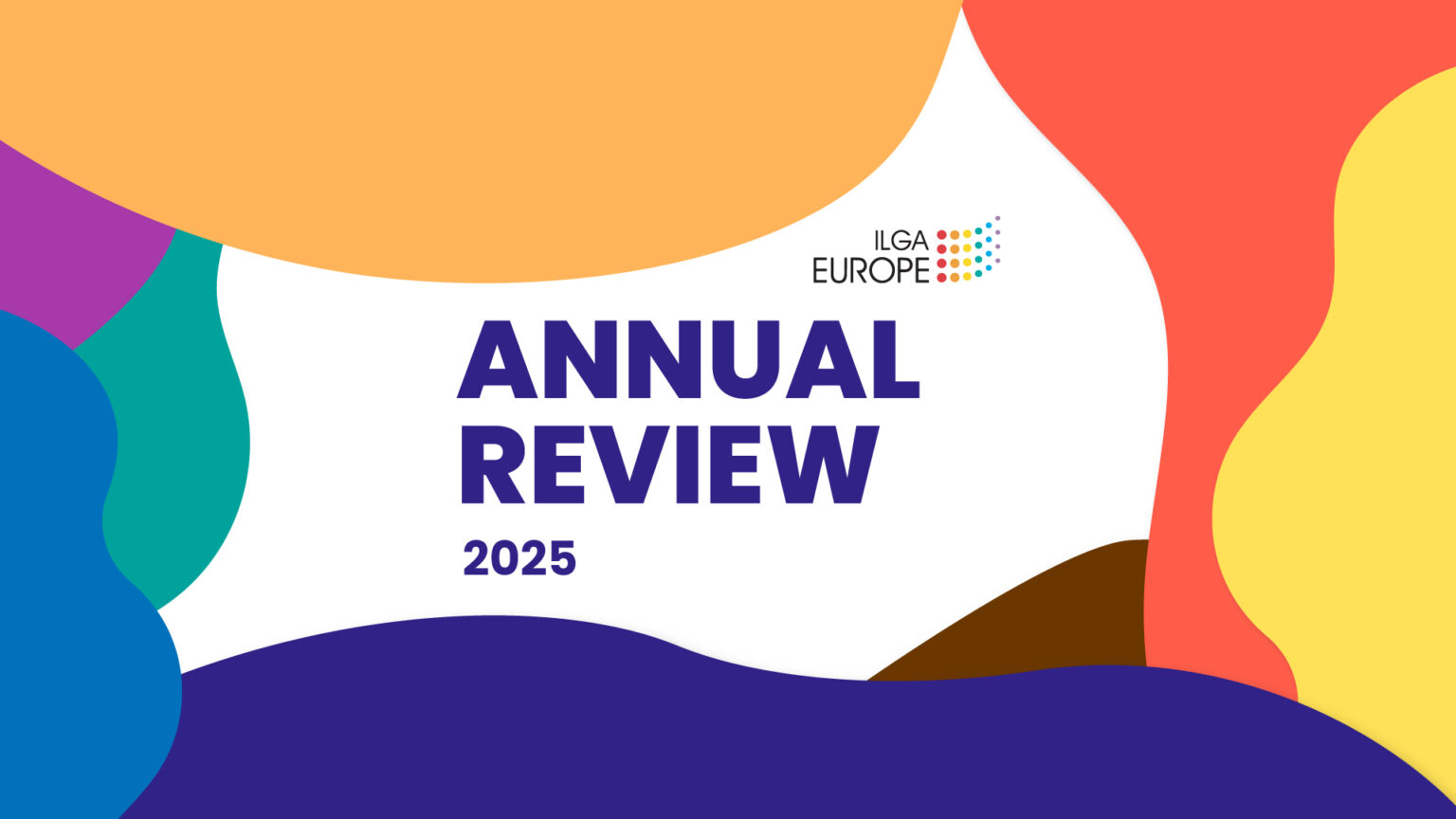
Below you can select Annual Review 2025 by topic and download the highlights and trends from this edition.
Select your topic
Choose a section of the Annual Review to preview:
2025 HIGHLIGHTS AND TRENDS
Here are the key overview findings of this edition of the Annual Review. To access all our analysis, download the full trends report.
1. Increasing restrictions
In seven countries, so-called ‘LGBT propaganda’ laws have been enacted or proposed, criminalising visibility and restricting discussion of LGBTI issues. In parallel, ‘foreign agent’ laws targeting NGOs have been either proposed or introduced in Bulgaria, Georgia, Hungary, and Montenegro, forcing LGBTI organisations to register as foreign-funded entities.
2. Education being leveraged
These laws have been increasingly leveraged in education sectors, restricting or entirely preventing the inclusion of LGBTI issues in curricula and awareness-raising initiatives. In addition, attempts to introduce legislation excluding LGBTI topics from sex education were recorded in Bulgaria, Hungary, Italy, the Netherlands, Luxembourg, Norway, Romania, Russia and Slovakia.
3. Consequences of the normalisation of hate speech
Hate crimes have reached record levels, fuelled by a normalisation of hate speech by political and religious leaders. At the same time, fear-mongering is being used to justify restrictions on trans healthcare in countries such as Georgia, Hungary, Ireland, Romania, and the United Kingdom.
4. Arbitrary asylum rejections
As governments intensify their crackdowns, LGBTI individuals are being forced to flee, yet many European countries—including Austria, Belgium and Ireland—are denying asylum claims on arbitrary grounds, with applicants rejected for not seeming ‘gay enough’.
5. Courts upholding LGBTI human rights
While governments are increasingly scapegoating LGBTI people to push restrictive laws, the courts both in the EU and across Europe are in turn upholding LGBTI human rights, with key judgements on procedures for LGBTI asylum seekers, anti-LGBTI hate speech, freedom of association and expression, legal gender recognition, and sexual and reproductive rights.
New Era of Coordinated Attacks on Foundations of Fundamental Rights, European Report Finds
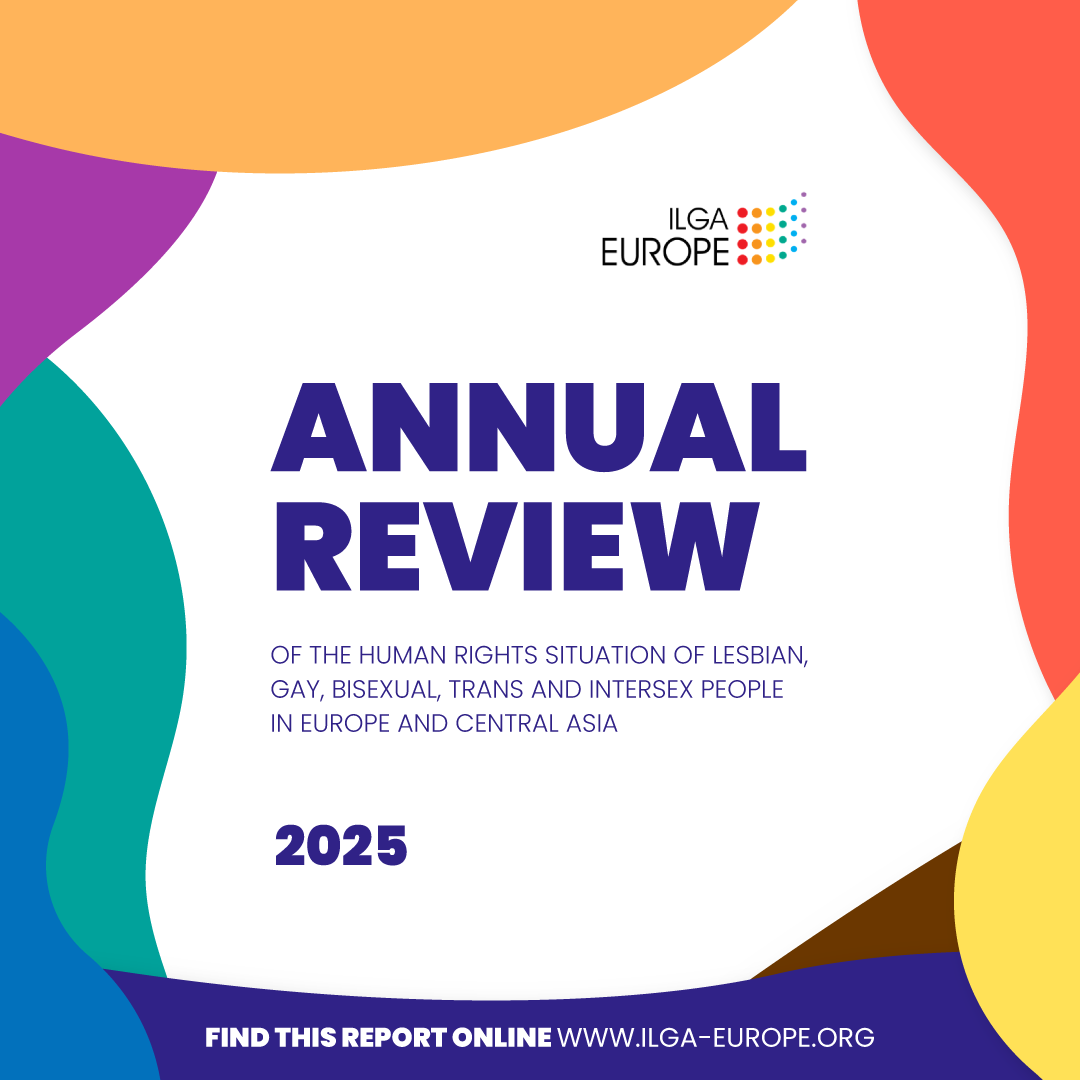
A major report published today identifies how LGBTI people are being weaponized to erode the foundations of freedom and democracy across Europe.
Released today, February 18, 2025, ILGA-Europe’s ‘Annual Review of the Human Right Situation of LGBTI People in Europe and Central Asia’ warns of a new era in which rising anti-LGBTI legislation threatens fundamental rights. Governments are fueling anti-LGBTI sentiment to push laws that restrict freedom of expression, association, and fair elections.
Governments are increasingly adopting tactics similar to Russia’s, forcing NGOs to register as ‘foreign funded’ to undermine their legitimacy, restrict funding, and stifle human rights activism. Known as ‘foreign agent’ laws, these measures are framed as protecting families and traditional values while often specifically targeting LGBTI NGOs. Last year in Bulgaria, Georgia, Hungary, Kyrgyzstan, and Montenegro, proposed foreign agent laws posed a direct threat to civil society.
Such legislation is enacted with or in the wake of so-called ‘LGBT propaganda’ laws that seek to criminalise visibility of LGBTI people, ban content, silence activists and restrict freedom of assembly, which have been either discussed, proposed or adopted in seven countries (Azerbaijan, Belarus, Bulgaria, Georgia, Kazakhstan, Romania, and Slovakia). These laws have been increasingly leveraged in education sectors, restricting or entirely preventing the inclusion of LGBTI issues in curricula and awareness-raising initiatives. In addition, attempts to introduce legislation excluding LGBTI topics from sex education were recorded in Bulgaria, Hungary, Italy, the Netherlands, Luxembourg, Norway, Romania, Russia and Slovakia.
In this context, LGBTI-phobic hate speech, sexism and misogyny are increasingly normalised, often fuelled by public figures, including political and religious leaders and state institutions. This is in turn driving an unprecedented surge in violence as hate crimes have reached record levels across the region.
The normalisation of hate is also providing justification for the blocking of healthcare for trans people. Andorra, Georgia, Hungary, Ireland, Moldova, Romania, Russia, and the UK have all put in place new barriers to care. Following the UK Cass Review, efforts to restrict trans healthcare for minors have emerged in Austria, France, Italy, Ireland, Poland, and the UK, putting trans lives further at risk.
As an increasing number of governments crack down, LGBTI people are being forced to flee—but Europe is closing its doors. Russia, Kyrgyzstan, and Turkey are intensifying persecution, and Turkmenistan is entrapping and torturing LGBTI individuals. Yet, many European countries, including Austria, Belgium, Bulgaria, Ireland and the UK, are denying asylum claims based on outdated, arbitrary assessments, with some officials rejecting applicants for not ‘seeming LGBTI enough.’
According to ILGA-Europe’s Executive Director, Chaber: “This report confirms what many of us have feared—we are entering a new era where LGBTI people have become the testing ground for laws that erode democracy itself. Across Europe and Central Asia, governments are using anti-LGBTI rhetoric to justify restrictions on free speech, civil society, and fair elections. What begins as an attack on LGBTI rights rapidly grows into a wider assault on the rights and freedoms of all individuals in society. This is not just an LGBTI issue; it is a crisis for human rights and democracy as a whole.”
ILGA-Europe’s Advocacy Director, Katrin Hugendubel added: “While governments are increasingly scapegoating LGBTI people to push restrictive laws, the courts both in the EU and across Europe are in turn upholding LGBTI human rights, with key judgements on procedures for LGBTI asylum seekers, anti-LGBTI hate speech, freedom of association and expression, legal gender recognition, and sexual and reproductive rights. But at this critical time, our leaders cannot simply leave the protection of human rights to the courts. Politicians at both the European and national levels must act decisively to counter the growing attacks on the cornerstones of democracy we are seeing. The normalisation of anti-LGBTI rhetoric is not just a threat to one community—it is now a proven direct assault on the democratic principles that underpin our societies.”
Further Information
Download a full analysis of the trends here
Read the ILGA-Europe’s Annual Review here
See up-to-date legislative developments in each country with ILGA-Europe’s Rainbow Map